Billy Graham’s Transformative Investment in Southern Seminary
R. ALBERT MOHLER, JR.
12 Te Great Commission is Our Mandate
PAUL AKIN
28 Workers Unashamed: Our Vision for the Billy Graham School
JEREMY PIERRE

Missions, Evangelism, and Ministry: Celebrating the 30th Anniversary of the Billy Graham School
V92 N1 4
Your MDiv: Incentivized
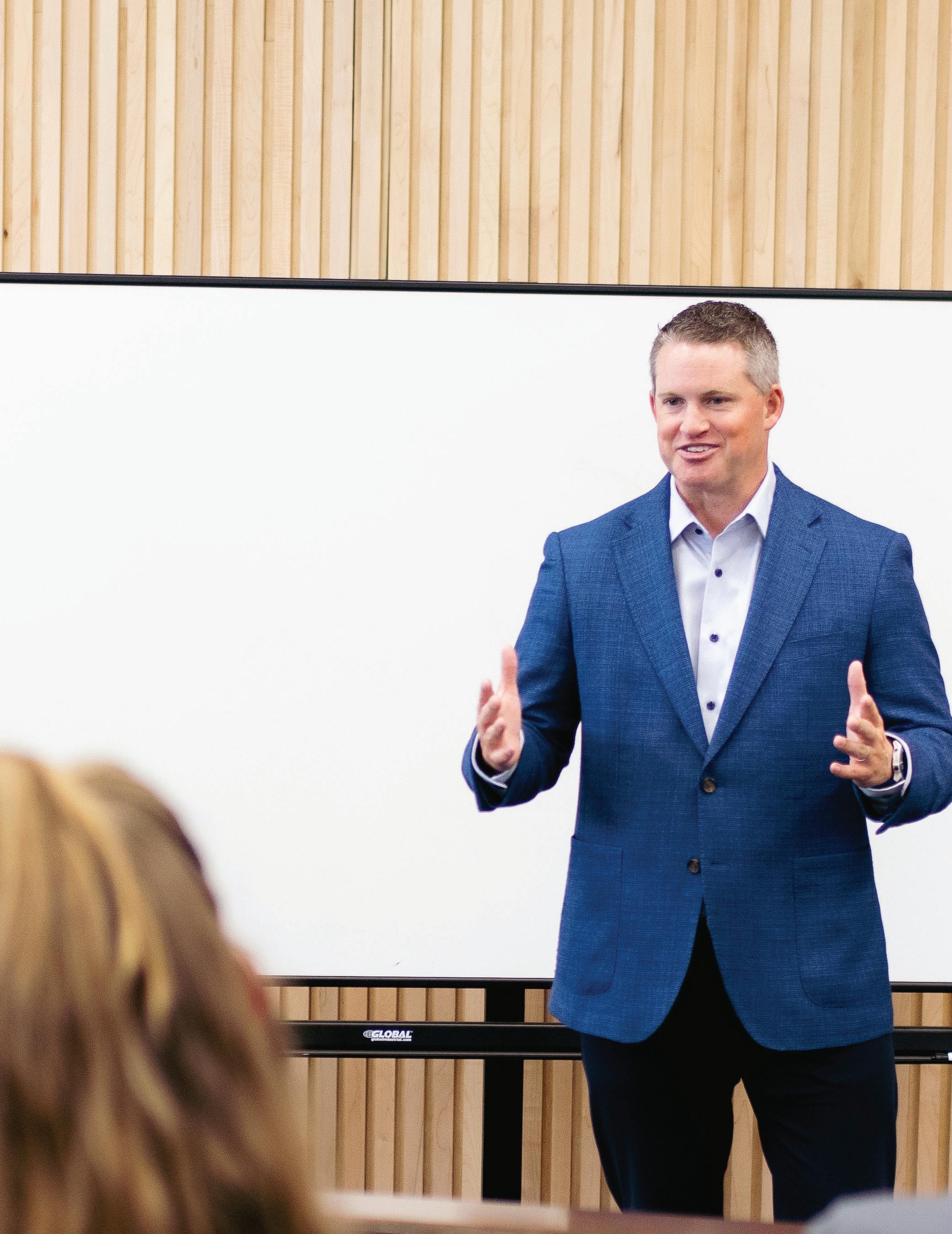
SAVE MONEY AND TIME BY STUDYING IN LOUISVILLE.
Master of Divinity students who prepare for ministry by studying on the Southern Seminary campus can save $1,800 each semester in tuition. Residential MDiv students now pay for only the frst 9 hours per semester and may take as many additional courses as they want for free!
By spending more time in the classroom, you’ll be spending less money in tuition, and graduating sooner than you expect. Southern Seminary is making it more afordable than ever to prepare for a lifetime of faithfulness.
Explore how incentivizing your Southern MDiv helps accomplish your ministry goals at sbts.edu/newmdiv
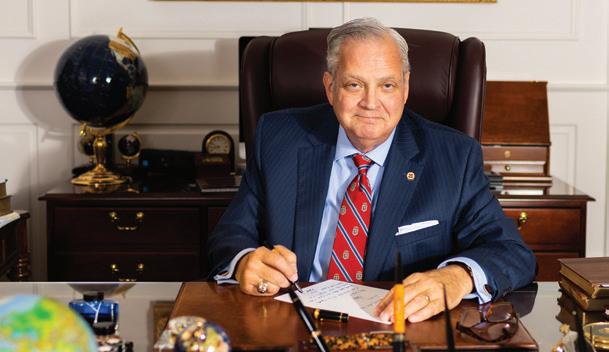
EPresident's Message
R. ALBERT MOHLER, JR.
very time I walk across the Southern Seminary and Boyce College campus, my heart is flled with gratitude and happiness. My happiness comes from seeing students and faculty doing exactly what they have come here to do: teaching and learning, conversing with one another, and enjoying the fellowship that marks this campus. I'm also profoundly grateful because when you look across the world of theological education, you see many institutions struggling. You see a good number of institutions that have just fundamentally lost their way and no longer even represent the founding vision and convictions that brought them into existence. Seeing this decline elsewhere, even within other evangelical seminaries and ministry training programs, makes me all the more grateful for the blessings of God here.
At Southern Seminary, I see these blessings when I look out on the lawn, when we gather together in chapel, when we walk down a hallway, and especially when we walk into a classroom. I have had the great joy of teaching in the classroom this most recent term, and I can tell you that there's nothing more exhilarating than being in a room flled with Southern Seminary and Boyce College students. It is a joy to talk about the glorious truths of the Christian faith and the magnifcent calling of the Christian Ministry and Christian service. Our determination is to turn out a generation that will infuence the world and lead the church into a new generation of faithfulness.
I can only tell you how thankful I am for the profound health that this school represents.
My invitation to you is to come and see this health and receive encouragement as we see the promise of God in this rising generation. Tis year, we are also marking the 30th anniversary of the Billy Graham School of School of Missions, Evangelism, and Ministry. Tree decades ago, the Lord gave this vision to Southern Seminary, and now, so many years later, we can see how God has blessed this school, thrusting it into the forefront of theological education for missions, evangelism, and church ministry in this new generation.
I am so thankful the Billy Graham School is doing so well in every respect and that the school's leadership and faculty are ready to see with eagerness the opportunities the Lord has put before us. I can assure you that the Billy Graham School is ready for a fourth decade of ministry and ready to go through the door the Lord has opened for us. Tank you for being a part of what God is doing for the sake of his name at the Southern Baptist Teological Seminary in Boyce College.
ALBERTMOHLER.COM
SPRING 2024 1
R. Albert Mohler, Jr.
THE SOUTHERN BAPTIST THEOLOGICAL SEMINARY
From the Editor
JACOB PERCY
When you come for a tour of Te Southern Baptist Teological Seminary and are escorted around the campus, our student ambassadors will point out one of the unique honors our seminary enjoys – Southern Seminary is the only institution with a school named in honor of Billy Graham. In 1994, at President R. Albert Mohler, Jr.'s request, the renowned evangelist gave his name to the newly established Te Billy Graham School of Missions and Evangelism, now Te Billy Graham School of Missions, Evangelism, and Ministry, in a show of support for Dr. Mohler's vision for the seminary.
Speaking at the inauguration of Dr. Mohler as the 9th President of Southern Seminary, Billy Graham said of Dr. Mohler, "You have elected a man with a tremendous vision not only for the future of this theological seminary but for the future of evangelism and missions in the Southern Baptist Convention and around the world." Te establishment of the Billy Graham School was a pivotal step Dr. Mohler took to bring the vision that Dr. Graham recognized and celebrated to reality as Southern Seminary now had a school focused on preparing gospel ministers to be faithful proclaimers of the gospel and could recruit faculty members who shared Dr. Mohler's convictions, confessional identity, and vision for the direction of the seminary.
Today, thirty years later, the founding vision for the Billy Graham School remains steadfast. Its mission is to "Equip God-called individuals
for theologically grounded and skillfully practiced service in the local church as pastors, missionaries, evangelists, church planters, biblical counselors, worship leaders, and lay leaders." Over the past three decades, this mission has been realized as thousands of students have been trained, educated, and equipped as graduates are serving faithfully with the missions organizations of the Southern Baptist Convention, leading fourishing counseling ministries, faithfully pastoring new and revitalized churches, leading the church in worship, and as trusted leaders in churches worldwide. As we celebrate the Lord's faithfulness through the Billy Graham School on its 30th Anniversary, we also rejoice in the faithfulness of our current students, who are preparing to follow in the footsteps of these inspiring graduates. Tis joy continues even to the present. On May 10, 154 graduates of the Billy Graham School had their degrees confrmed and pledged that "we are the next in line" as they go out as ministers of the gospel.
As we commemorate three decades of the faithfulness of Te Billy Graham School of Missions, Evangelism, and Ministry, we do so with eager anticipation for the future. We look forward to how the Lord will continue using the school and its graduates to spread the gospel and strengthen His church. With this hopeful outlook, we dedicate this issue of the Southern Seminary Magazine to celebrating Te Billy Graham School.
Spring 2024. vol. 92, no. 1. Copyright © 2024
Theological Seminary
Vice President of
Editor: Jacob Percy
Samantha Rice
Chief Style and Copy Editor: Torey Teer
R. Albert
Southern Seminary Magazine
Mail: Online: Email: Telephone: (502) 897-4000
2 THE SOUTHERN BAPTIST THEOLOGICAL SEMINARY

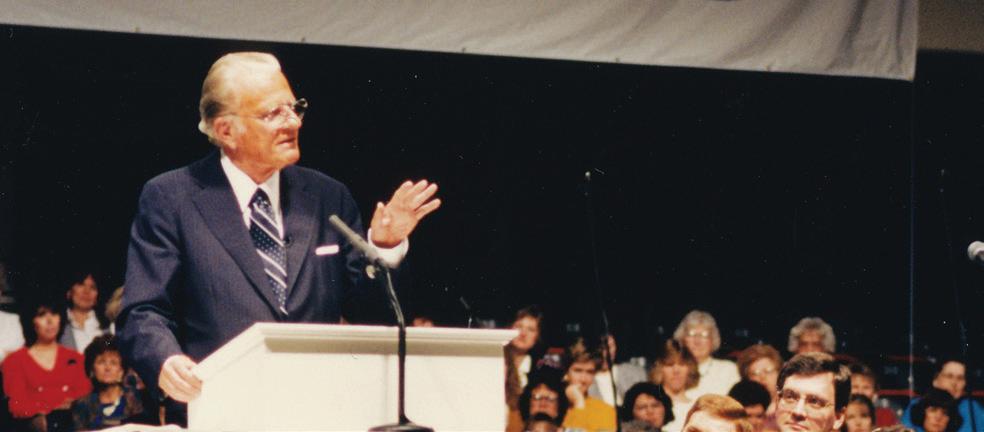
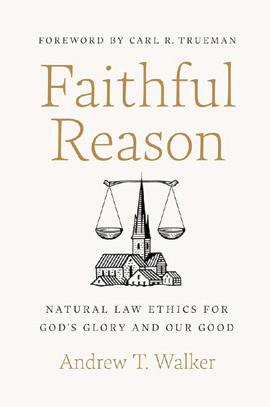
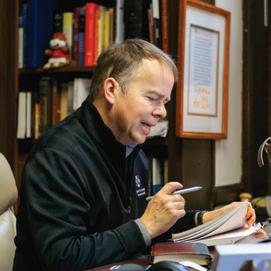

Contents V92 N1 12 The Great Commission is Our Mandate by Paul Akin 4 Billy Graham’s Transformative Investment in Southern Seminary by R.
28 Workers Unashamed: Our Vision for the Billy Graham School by Jeremy Pierre 36 INSIDE THE DAILY DOSE OF GREEK by Travis Hearne 40 NEWS & FEATURES 50 BACK IN THE LIBRARY 52 EVANGELISM AS A WAY OF LIFE by Timothy K. Beougher 20 THE HISTORY AND SIGNIFICANCE OF THE BILLY GRAHAM SCHOOL by
46 FACULTY BOOKS SPRING 2024 3
Albert Mohler, Jr.
Gregory A. Wills
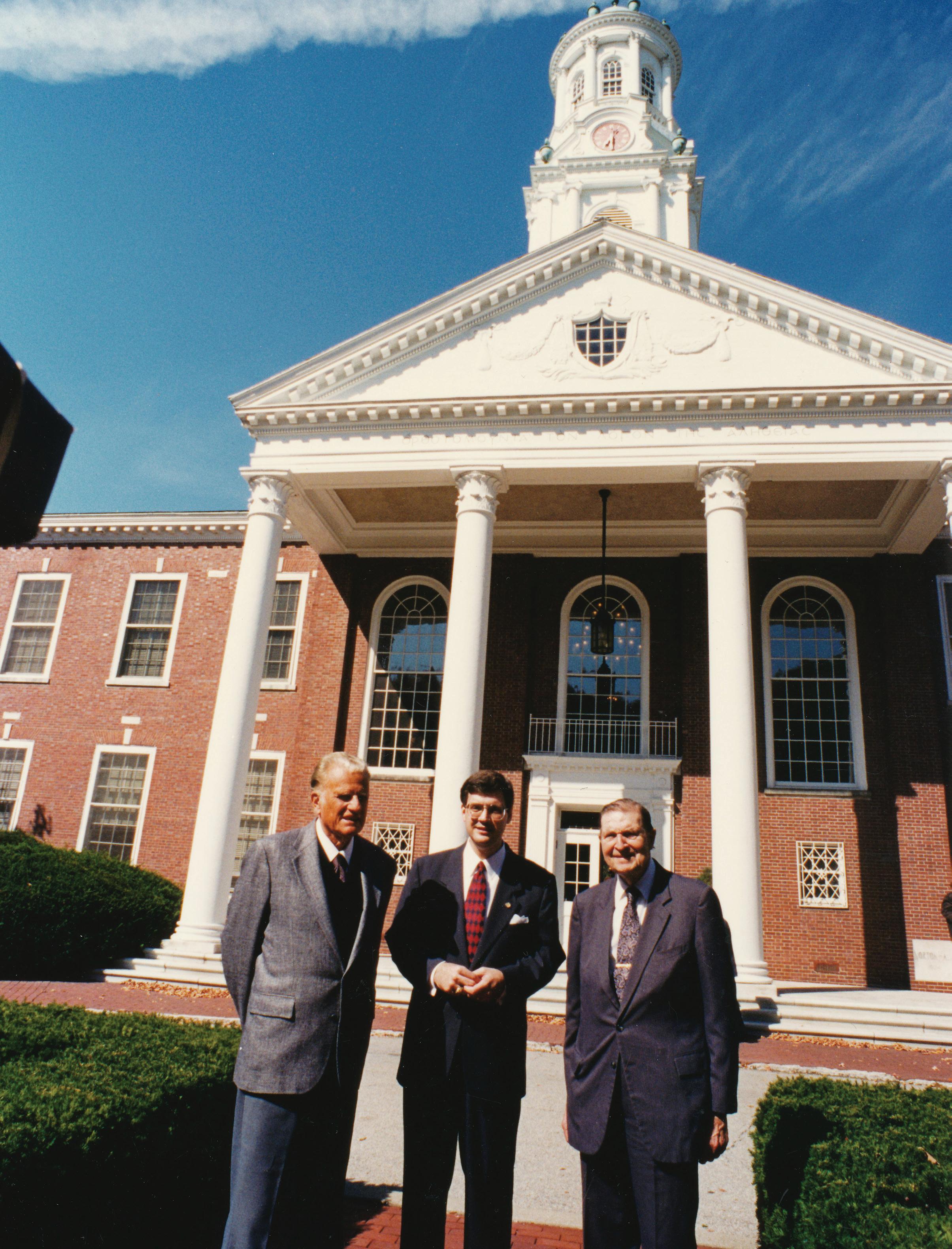
4 THE SOUTHERN BAPTIST THEOLOGICAL SEMINARY
Billy Graham’s Transformative Investment in Southern Seminary
R. ALBERT MOHLER, JR.
When I was elected president of the Southern Baptist Teological Seminary in 1993, I knew that I faced some incredible challenges. Southern Seminary faced huge questions as we were about to undergo years of struggle to right the ship and return the seminary to its founding vision. We had to recover convictions and confession and theological bearings. Given the complexity of the institution and the size of this school, by God's providence it represented a very signifcant structural challenge. At the very time we were facing these challenges, Dr. Billy Graham came alongside me and this school with full support, and with a remarkable understanding of the challenges we faced.
Soon afer I was elected, Dr. Graham sent a delegation of his senior staf to meet with me. Tey brought incredible encouragement and
precise and invaluable practical advice. Tey also assured me Dr. Graham understood the situation and wanted to be as helpful as possible. I was eager to discuss these things with Dr. Graham, which became possible in several conversations. When Dr. Graham invited me to tell him how he could be helpful to us, I had two big asks in mind. In retrospect, both were audacious, and I was asking more of Dr. Graham than I even understood at the time.
First, I asked him specifcally if he would come and speak at my inauguration. An academic inauguration is a major event. It's a part of the formality of an institution of this stature. I was so young and had been given so much responsibility, and the issues were incredibly public. I came to an understanding that what was needed was an afrmation—from someone of the stature of Billy Graham—of what we were seeking to do here. Te challenge was there was only one Billy
SPRING 2024 5
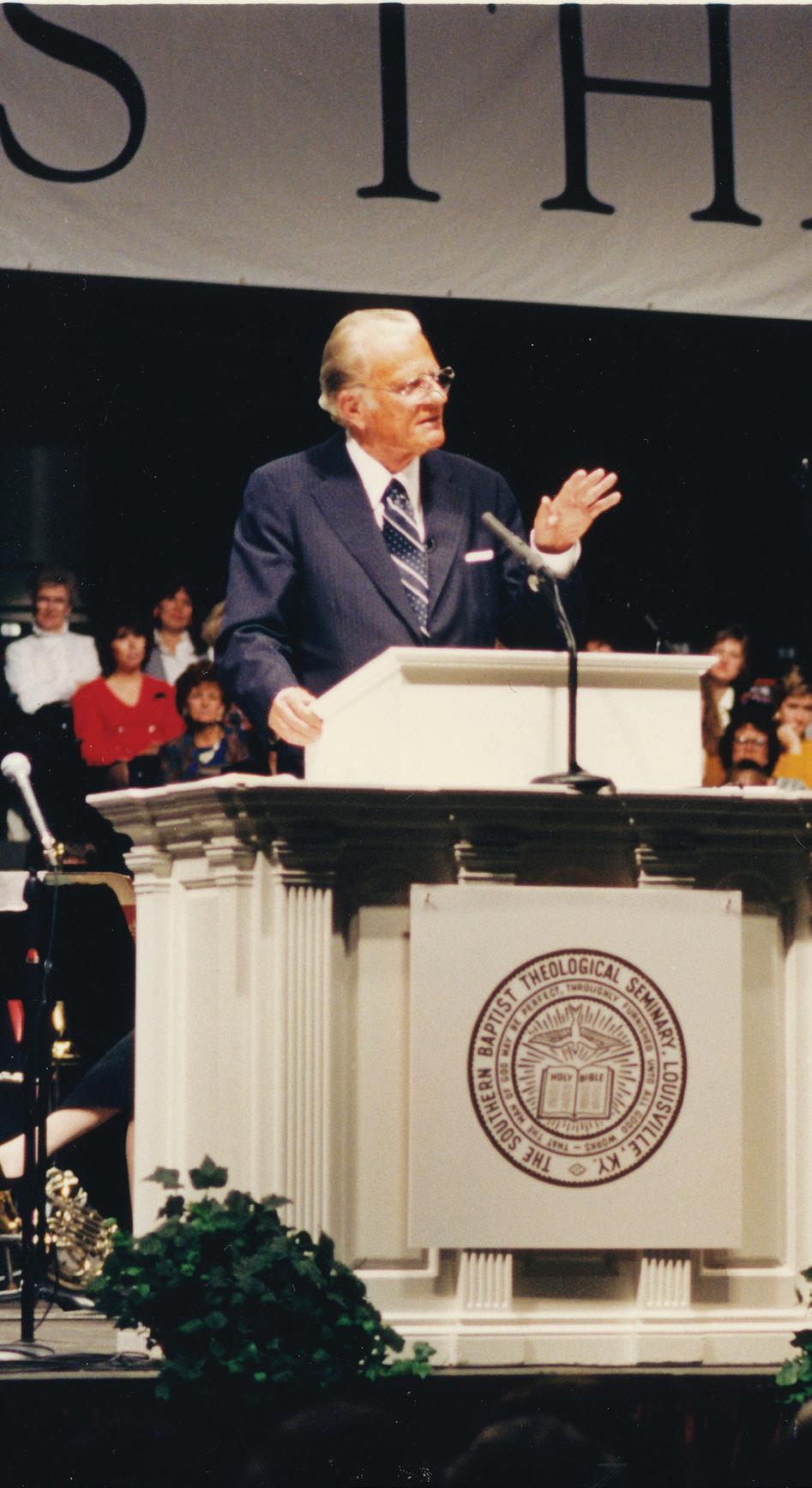
Graham on planet Earth. But in God's providence, I had the opportunity to tell him how he could help. So, the very frst thing I asked was that he'd come and speak at my inauguration. Tis request was far more than a formality because it would allow Dr. Graham to speak inspirationally to the entire Southern Seminary family and beyond the seminary community, to the entire Southern Baptist Convention and the watching evangelical world. Dr. Graham could share what was taking place here and why it was so important. Dr. Graham accepted that invitation and delivered
on that promise in October of 1993. Tanks in no small part to Dr. Graham, that day was a glorious turning point in the history of this school.
I will be forever indebted to Dr. Graham for the fact that he gave so generously of his time to come to Louisville, and to give his enthusiastic support to what we were seeking to do right here on this campus. Dr. Graham had been a Southern Baptist for decades and knew the issues in the Southern Baptist Convention, as history would record. He demonstrated courage to put his reputation on the line to assist this efort, but as I said, I had a second ask, which was even more monumental.
Second, I asked that Dr. Graham allow us to announce during his visit that we were establishing the Billy Graham School of Missions, Evangelism, and Church Growth—now Te School of Missions, Evangelism, and Ministry— as a tangible sign of the reorientation of Southern Seminary. Now, there was more to it than just establishing a new school that would bear Dr. Graham's name. Te fact is that I faced enormous challenges in reforming the School of Teology, and the current structure prevented me from making some of the immediate hires I wanted to make in order to send the very clear signal of the conservative evangelical scholarship to which Southern Seminary was now committed. To put the matter honestly, I had to create faculty. We had to have faculty vacancies before we could make strategic hires in the School of Teology. Tat would take some time, but by creating this new school emphasizing missions, evangelism, and church growth, we could immediately do what would've taken many years otherwise. Dr. Graham understood this, as did his senior team, and even though he had not allowed his name to be put on any such school at any time in the
6 THE SOUTHERN BAPTIST THEOLOGICAL SEMINARY B ILLY G RAHAM ’ S T RANS F ORMATI V E I N V ESTMENT IN S OUTHERN S EMINARY
past, he made an exception to his practice and allowed us to announce the establishment of the Billy Graham School, while he was present with us here for the inauguration, on Southern Seminary's campus. History will record the monumental importance of Dr. Graham in these two interconnected acts of generous investment in Southern Seminary. Te world's most famous evangelist, known throughout the world for his commitment to the gospel of Jesus Christ, threw in his lot with me, the trustees, with the Southern Baptist Convention, and with the cause of recovering this institution without reservation, for the authority of scripture and the power of the gospel.
Others were also instrumental, including Mrs. A.P. Stone of Missouri. Mrs. Stone (Faye) was the widow of Judge A.P. Stone, and as a couple, they had made strategic investments and demonstrated their generosity to Baptist causes. I went to see her with the hope that I could communicate to her the strategic importance of this school and the importance of the fact that it would be named for Billy Graham. When I met with her, it was clear that she understood exactly
what we were seeking to do, and she generously responded to my request for a $2 million lead gif to establish the school. Tat was so important because it would immediately give us some funding by which we could hire a dean, start hiring faculty, and begin f lling out the school so that it would be ready for students in the fall of 1994. By the time the gif was given, it was even more signifcant than Mrs. Stone had committed, which is just another sign of God's blessing upon the school even before it began.
Over the last three years, the school has been served by a remarkable series of deans. Dr. Tom Rainer came as the founding dean and established the school in its original lines in 1994. He gave his heart and mind to the school and was instrumental in recruiting its original faculty. He was followed by Chuck Lawless, and in successive years, Zane Pratt and Adam Greenway served as deans. More recently, Paul Akin came as Dean of the Billy Graham School, leaving a senior role on the International Mission Board of the Southern Baptist Convention. Now, Dr. Akin serves as provost of the institution, and Dr. Jeremy Pierre, who is bringing energetic, excellent leadership for
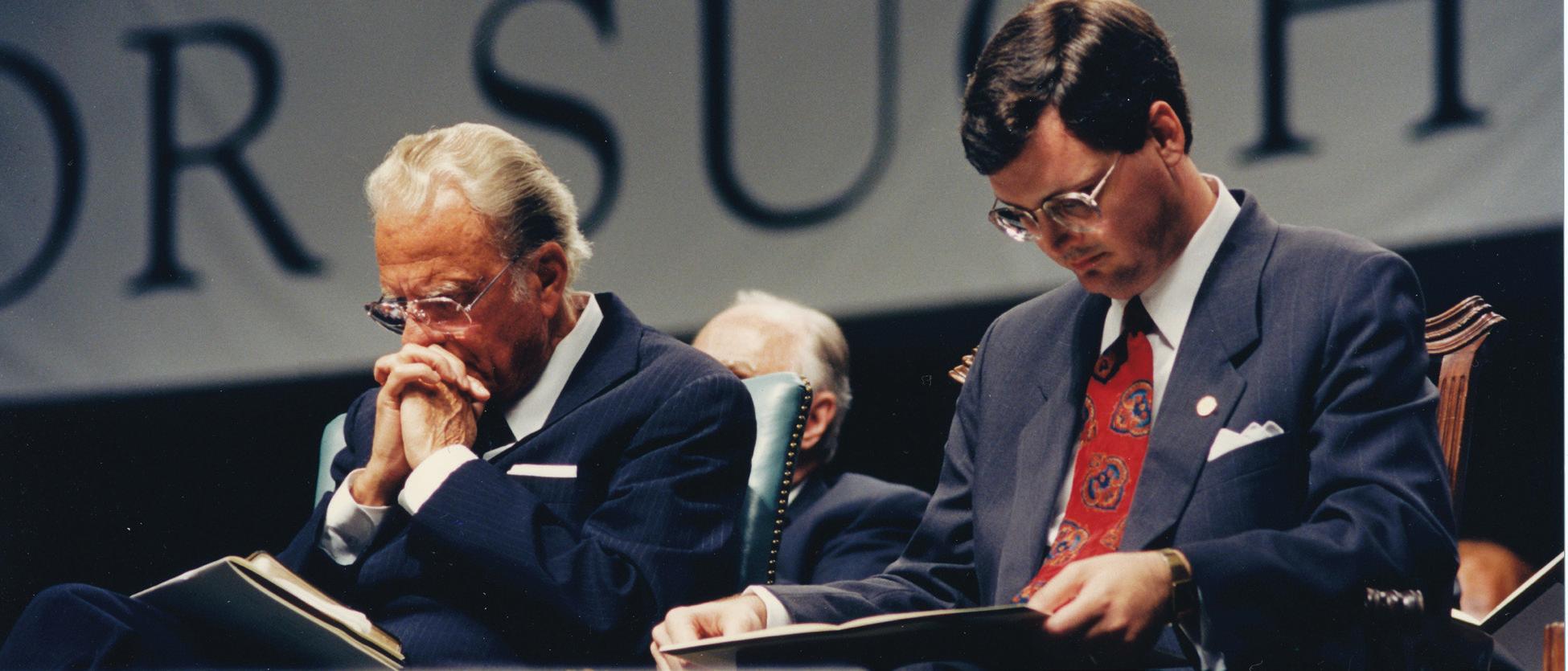
R. A LBERT M OHLER , J R . SPRING 2024 7
the fourth decade of the Billy Graham School's life and mission, serves as its dean.
I have to look with sheer gratitude at the number of faculty members who have come to teach at this school over the last three decades. Two in particular are on the faculty right now and represent a lifetime of commitment to Southern Seminary and to the Great Commission. Both Dr. Tim Beougher, who came to join this faculty as Professor of Evangelism, and Dr. George Martin, who came to serve as Professor of Missions are here with the school three decades later. Both already represent a lifetime legacy of teaching that is now channeled into the churches and mission felds around the world. I am just incredibly thankful for these two faculty members and for many others I could not possibly name within this telling of the story.
Over the last several decades, there have been thousands of students and graduates, and we can already see how they serve so strategically and faithfully worldwide. Primarily, they are pastoring churches and leading the people of God in Great Commission ministry. Tey're serving on the mission felds, and in strategic places of ministry. Tey serve throughout the felds of ministry and mission. Some are teaching on the faculties of other schools where they are multiplying the work of the Billy Graham School on another campus. All of this is to the glory of God.
I can only look back with sheer gratitude and thankfulness at what God has done through the Billy Graham School over the course of the last three decades. Very quickly, the Graham School became a great engine for accelerating the reformation that needed to take place throughout the institution, including the School
of Teology. For the last two decades and more, these two schools have worked in absolute tandem to prepare ministers of the gospel based upon undiluted conviction, confessional accountability, and an eager commitment to the Bible as the inerrant, infallible word of God and to the gospel as the good news that salvation has come, and that Jesus Christ is Lord. History will record that the establishment of the Billy Graham School was one of the most important moments in the history of the Southern Baptist Teological Seminary and, by extension, in the history of the Southern Baptist Convention and the larger evangelical world. I am so thankful to have witnessed this history frsthand and to know how the Lord worked to bring the story of the Billy Graham school together.
Even more than the gratitude I feel when I look to the leadership, the faculty, the students, and the alumni of the school, I am grateful to the Lord for his blessings in the present and his promise to this school in the future. I look at the students and faculty on this campus right now and can only imagine the impact of their preaching, evangelism, and gospel ministries for generations to come.
I am also gratifed to know that this would make Dr. Billy Graham, now in glory, very happy. If I had the opportunity, I would want to tell him about this school and its reach across the globe at this very moment. Yet we must humbly acknowledge that we will never actually know the impact of this school in this life. Tus far, we have only a hint, but this hint propels us forward with great eagerness as the Billy Graham School of Missions, Evangelism, and Ministry looks to the future.
8 THE SOUTHERN BAPTIST THEOLOGICAL SEMINARY B ILLY G RAHAM ’ S T RANS F ORMATI V E I N V ESTMENT IN S OUTHERN S EMINARY
Human Experience Meets Divine Revelation
“Our job as ministers is not primarily to solve someone’s problems. Te Bible is sufcient; we are not. Tere is no wisdom in the world that is superior to God’s Word. Te goal is to inform others about the true source of his issue and provide biblical counseling that demonstrates that the response to it is faith in God, his Word, his love, his grace, and his sovereignty.”
Dr. Jeremy Pierre
Professor of Biblical Counseling Te Southern Baptist Teological Seminary
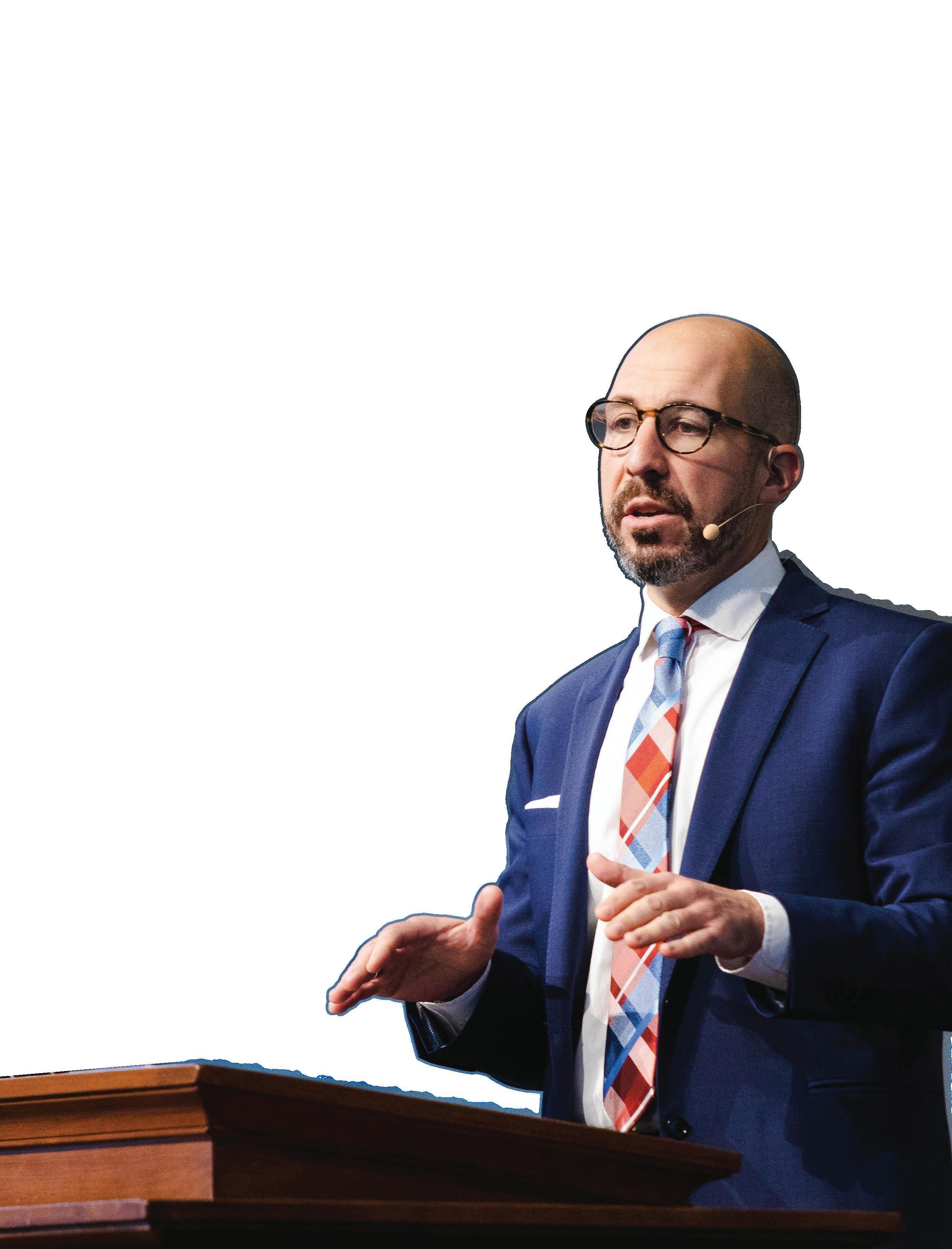
Learn online or in Louisville from scholars who are also pastors:
The Southern Fund
Southern Seminary trains, educates, and prepares men and women to be efective gospel ministers no matter where the Lord calls them. Now more than ever, the church needs biblically and theologically trained students to confront our increasingly secular age.
Our resolve to be faithful to the Scriptures has enabled us to become one of the most trusted names in theological education.
With thousands of fnancial partners, faithfully supporting our students, we are also one of the most afordable names in theological education.
Every dollar given to Te Southern Fund is one less dollar our students have to pay in tuition.
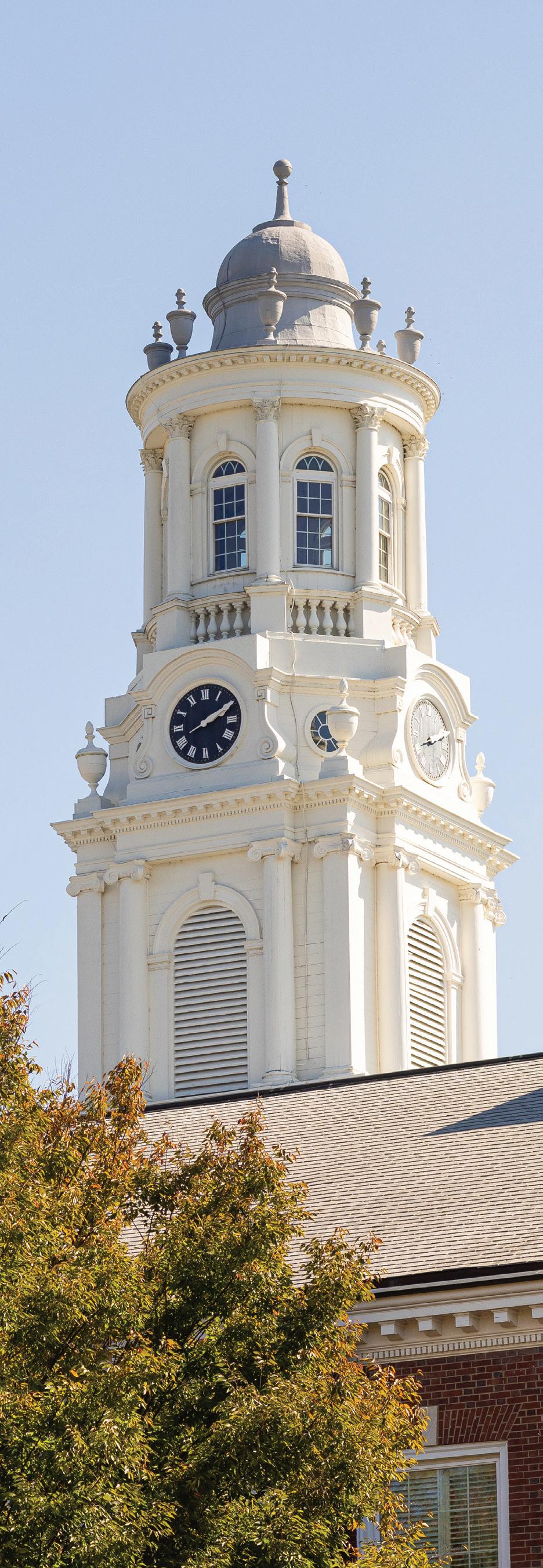

"The world's most famous evangelist, known throughout the world for his commitment to the gospel of Jesus Christ, threw in his lot with me, the trustees, with the Southern Baptist Convention, and with the cause of recovering this institution without reservation, for the authority of scripture and the power of the gospel."
R. A LBERT M OHLER , J R .
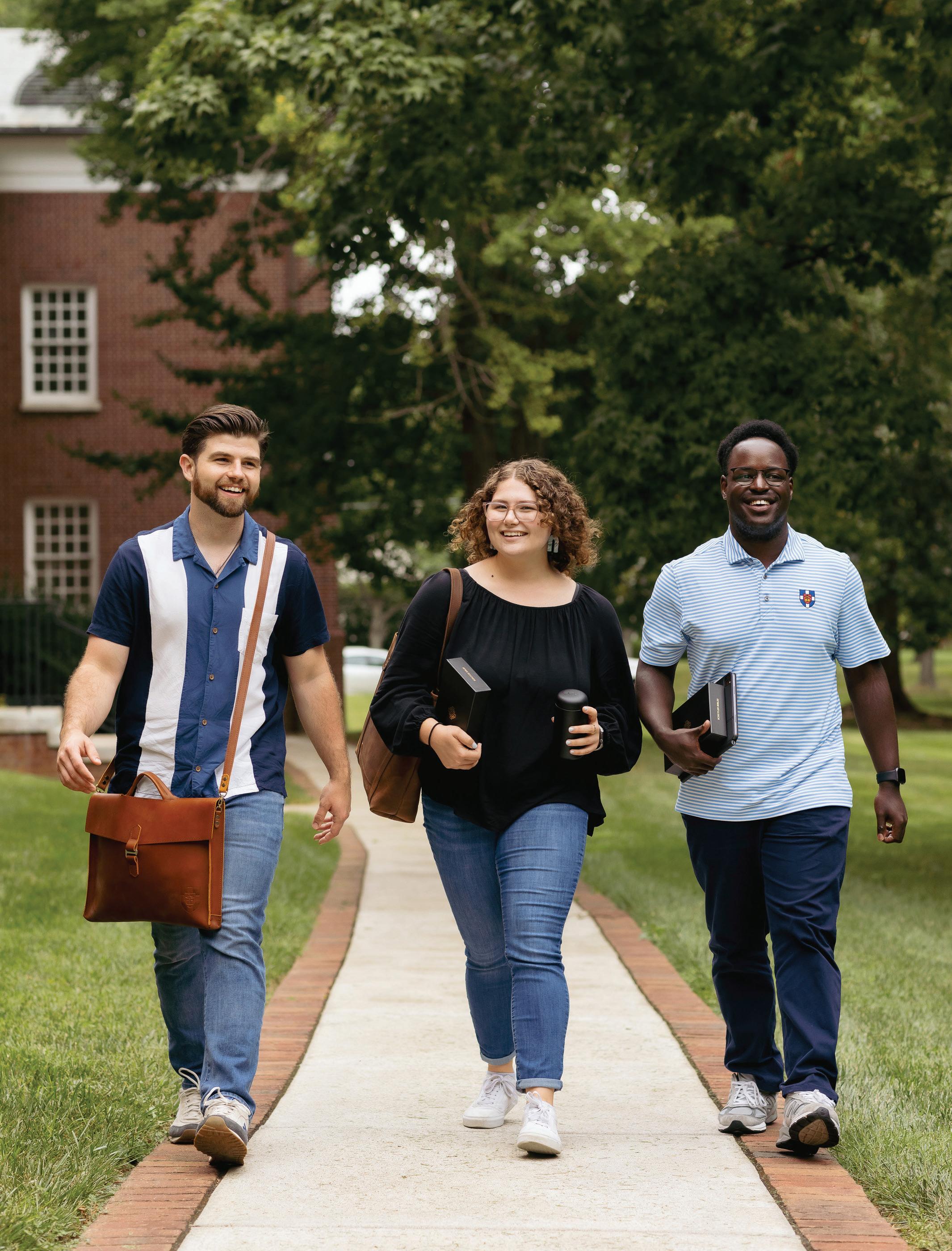
12 THE SOUTHERN BAPTIST THEOLOGICAL SEMINARY
The Great Commission is Our Mandate
PAUL AKIN
The Southern Baptist Teological Seminary is a confessional Southern Baptist seminary that endeavors to be a Great Commission seminary. Te language of our mission statement explicitly expresses this Great Commission desire:
Under the lordship of Jesus Christ, the mission of Te Southern Baptist Teological Seminary is to be totally committed to the Bible as the Word of God, to the Great Commission as our mandate, and to be a servant of the churches of the Southern Baptist Convention by training, educating, and preparing ministers of the gospel for more faithful service.
Our mission statement prioritizes what Jesus prioritized. Our focus is God’s Word, God’s
mission, and God’s church. Much has been written about our commitment at Southern Seminary to the Bible as the Word of God and our role in serving the churches of the Southern Baptist Convention. However, I want to emphasize the Great Commission as our mandate here in this article.
Te Great Commission is at the heart of the Christian faith and thus must be at the heart of Southern Seminary. Following his resurrection, Jesus gathered his disciples and gave them a commission from a mountaintop in Galilee. Tis commission changed the course of human history. Jesus commanded his followers to “go . . . and make disciples of all nations, baptizing them in the name of the Father and of the Son and of the Holy Spirit” (Matt 28:19 ESV). In the fnal moments before his ascension, Jesus could
SPRING 2024 13
have instructed his followers on a variety of matters, but he chose to give the Great Commission task to his disciples. Terefore, the Great Commission was an urgent priority for Jesus and his followers, and it remains an urgent priority for Southern Seminary in the twenty-frst century.
Te Great Commission as Mandate
Te Great Commission is a mandate. It is a directive from Jesus himself and a call to action for every believer. Followers of Jesus are commanded to engage in the Great Commission as they follow Christ in the world. Te Great Commission transcends geographical boundaries and cultural barriers. It is a universal call to spread the message of redemption, hope, and salvation to the ends of the earth. Te Great Commission is the means by which Christ-followers are able to actively participate in God's overarching mission of redemption and reconciliation in the world.
At Southern Seminary, we are committed to training and preparing the next generation of pastors, missionaries, and church leaders to engage in Great Commission work here and around the world. Te Great Commission reminds us that every follower of Christ has a part and role to play in God’s mission. Every student, faculty member, and staf member in our campus community has been redeemed and reconciled to join God in his mission of redemption in the world. Tus, the Great Commission is a mandate for Southern Seminary and provides clear instruction regarding the primacy and urgency of evangelism, discipleship, and church planting.
Te Great Commission A Mandate for Evangelism
At the core, the Great Commission is a mandate for evangelism. It compels believers to proclaim the gospel message urgently, boldly, and unapologetically. Timothy Beougher, Professor of Evangelism and Church Growth, argues, "Within the word evangelism, we see the word evangel, meaning 'good news.' Te evangel which lies at the heart of the Christian faith is the good news about who God is and how he has provided reconciliation for sinful humanity. So, evangelism is to announce the euangelion, the good news.”
Terefore, the duty and responsibility of the church is to take the gospel of Jesus Christ to every nation, every tribe, and every people. At Southern Seminary, evangelism is a core component of our entire curriculum. Every student is required to take an evangelism course and to learn how to faithfully and efectively share his or her faith. We have groups of students who regularly go out into our city and community to share the gospel message. It is of the utmost importance that all students understand the centrality of evangelism in the Great Commission. Furthermore, evangelism is the starting point for faithful discipleship, which is at the center of the Great Commission.
Te Great Commission A Mandate for Discipleship
Jesus's fnal commission to his followers from a mountainside in Galilee contained one imperative command: Go and make disciples of all nations (Matt 28:19). Tus, the heart
14 THE SOUTHERN BAPTIST THEOLOGICAL SEMINARY T HE G REAT C OMMISSION IS O UR M AN D ATE
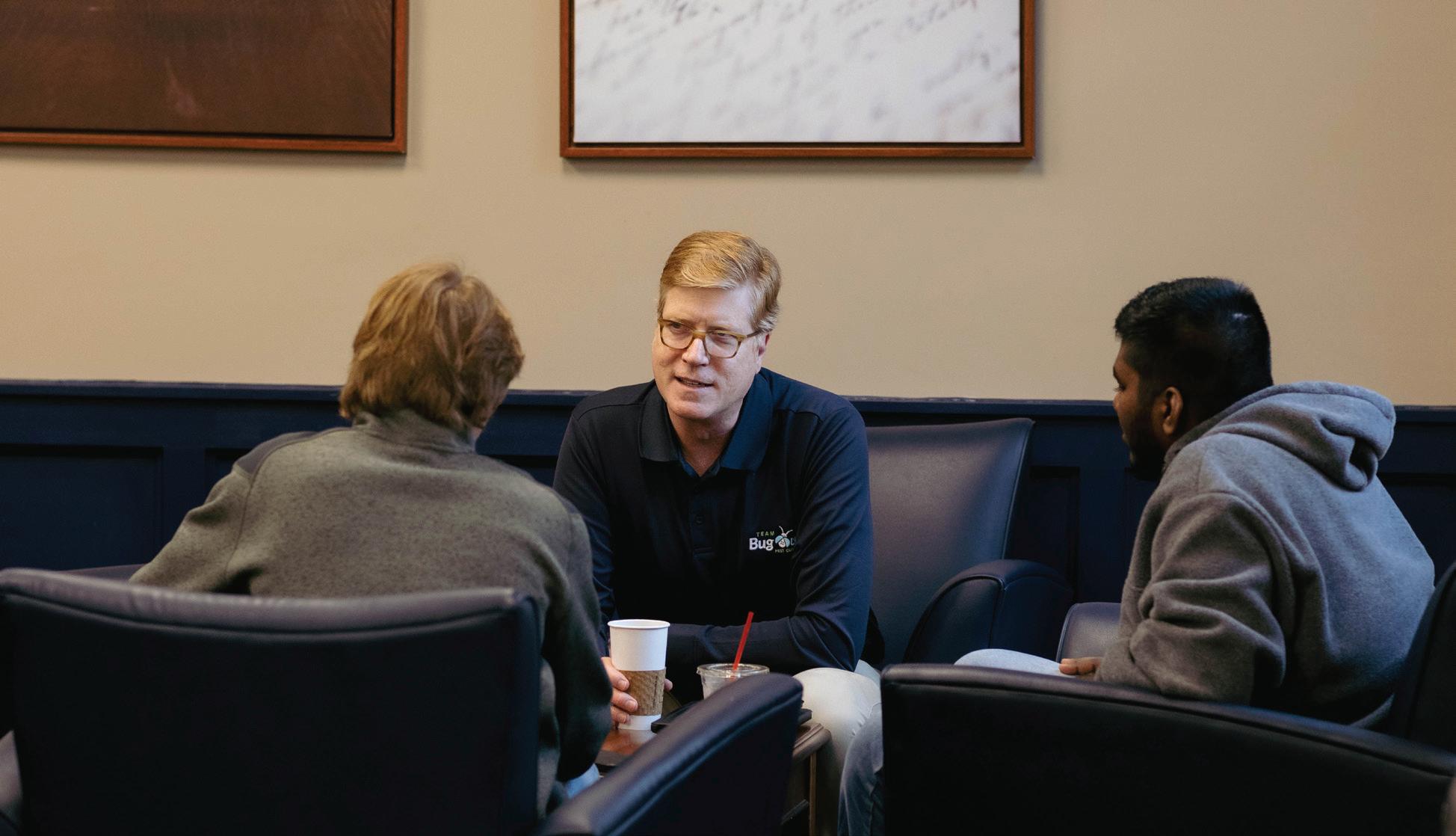
of the Great Commission is the mandate to make disciples of God among all nations. All of God's people are commanded to make disciples. Tere are no exceptions to that command and commission. Christianity is not for spectators. All of God's people have been saved and empowered by the Holy Spirit to make disciples.
Disciples are to teach, demonstrate, and model to new disciples what it means to obey and embody the commands of Christ. Terefore, Southern Seminary labors to train students to study and teach the Scriptures, to grow in personal and spiritual formation, and to be actively engaged in local churches as the primary place where discipleship takes place. Our commitment to discipleship in our curriculum and courses also results in an emphasis on the importance of the church and church planting in the Great Commission task.
Te Great Commission A Mandate for Church Planting
Troughout the New Testament, Paul and the apostles are concerned with planting and establishing local churches. Te focus of the Bible is not on building orphanages, providing clean water, or working toward eliminating global hunger. While those are all worthy endeavors and merit the commendation and attention of Christians, the focus throughout the New Testament is on strengthening and establishing local churches in places where Christ is not known or worshiped. Te primacy of church planting is most clearly seen through the ministry and missionary journeys of Paul in the book of Acts.
At Southern Seminary, we believe that God's primary instrument to accomplish the Great Commission is the local church. Local churches have been ordained by God,
PAUL AK IN SPRING 2024 15

commissioned by Christ, and empowered by the Holy Spirit to function as salt and light in the world. Terefore, a natural aim of Great Commission work is to see churches planted and established around the world that are biblical, Christ-honoring, and healthy for the glory of God. Te mandate of the Great Commission at Southern Seminary inevitably results in an unwavering focus on evangelism, discipleship, and church planting.
Te Great Commission A Mandate for a Great Commission Seminary
Today, there are more than eight billion people in the world. Practically, this means that billions of people are being born, living their entire lives, and dying without ever hearing the good news of Jesus Christ. Te realities of lostness and the goodness of the gospel demand a renewed emphasis and focus on the Great Commission today. God is using Southern Seminary to equip a new generation of Christians to love God, love the Bible, and be committed to the Great Commission.
In an increasingly global and urban world, Great Commission training and preparation is essential for any institution that desires to make a truly global and eternal impact. Since 1859, Te Southern Baptist Teological Seminary has been committed to the cause of the Great Commission. One day, King Jesus will return, and those who are united with him in salvation will dwell and reign with him forever. Our mandate as a Great Commission seminary is to faithfully obey the commission of Christ to share the gospel and make disciples of all nations until he returns.
16 THE SOUTHERN BAPTIST THEOLOGICAL SEMINARY T HE G REAT C OMMISSION IS O UR M AN D ATE
Redeployment is Retirement Redefined.

Your children are raised, and your career is complete. Serve Christ and his church even more efectively during retirement by earning the theological degree you’ve always wanted.
Explore the 1, 2, or 3 year Southern Seminary degree options that are redefining retirement:
SBTS.EDU/FINISHWELL
Every Career is a Missional Call
BECOME FUTURE READY AND KINGDOM FOCUSED
Boyce College graduates are pastors, counselors, and missionaries. They are also teachers, accountants, communicators, and lawyers. Boyce College prepares graduates to remain kingdom focused in their career wherever and however God leads them.
Learn more at BOYCECOLLEGE.COM

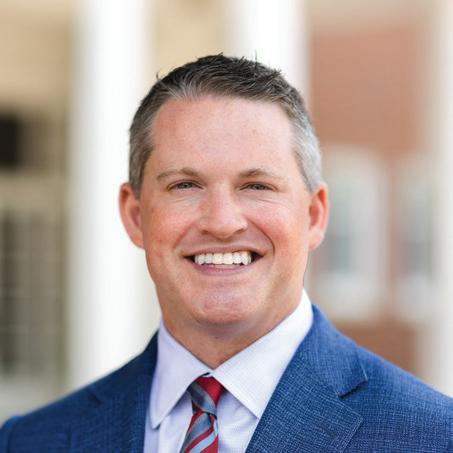
"The Great Commission is the means by which Christfollowers are able to actively participate in God's overarching mission of redemption and reconciliation in the world."
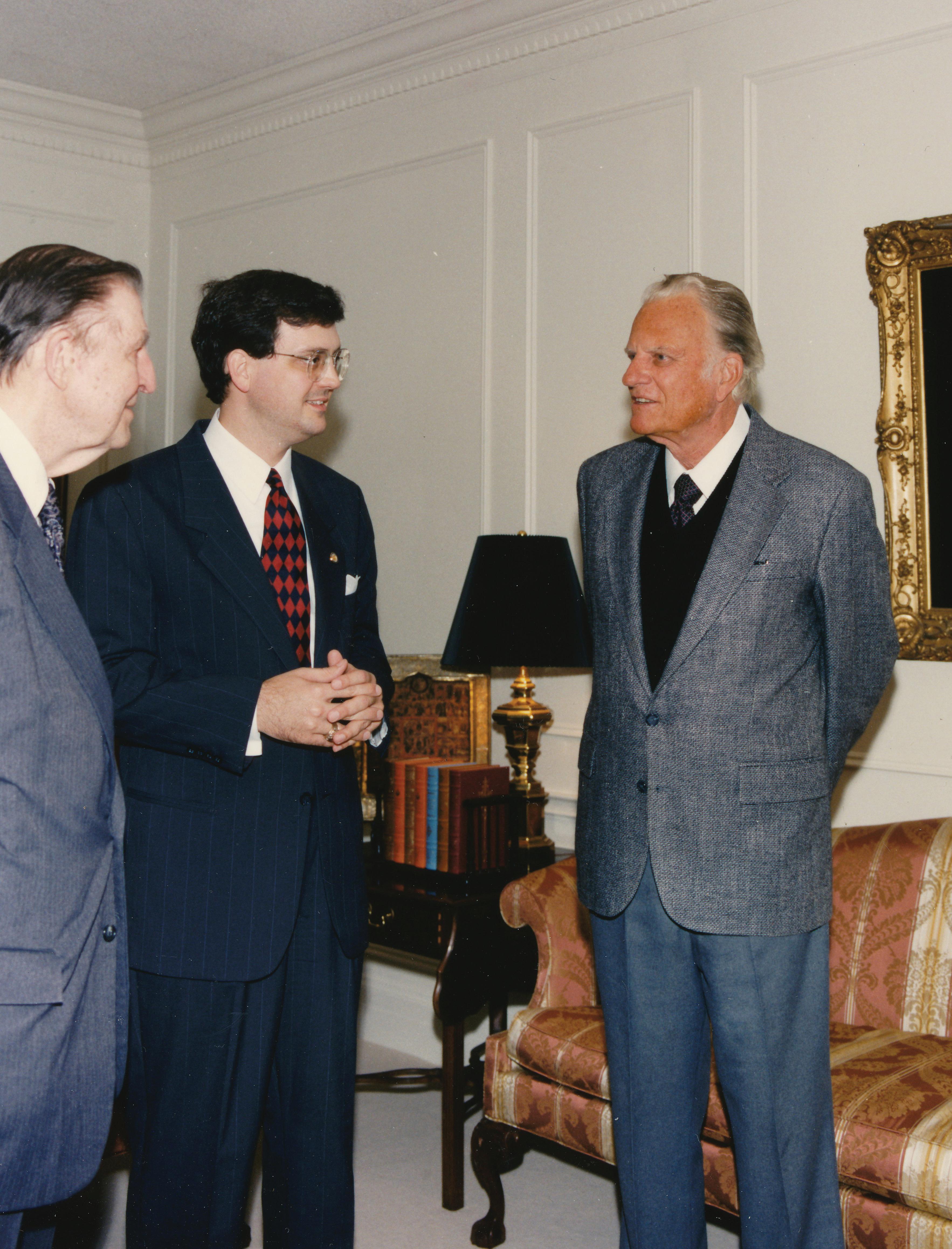
20 THE SOUTHERN BAPTIST THEOLOGICAL SEMINARY
The History and Significance of the Billy Graham School
GREGORY A. WILLS
When R. Albert Mohler assumed the presidency of Southern Seminary in 1993, his initial aim was to transform the theological character of the seminary. Te trustees who elected him charged him to accomplish his aim. So did Southern Baptists generally. Much of the faculty at that time opposed the inerrancy of the Bible; disagreed with some afrmations of the seminary confession, the Abstract of Principles; were dismissive of evangelicalism’s commitments; and were unenthusiastic about such evangelical leaders as Billy Graham. Mohler, in contrast, afrmed the inerrancy of the Bible, defended the truth of the Abstract of Principles, sympathized with evangelicalism’s commitments, and deeply appreciated the faithfulness of Billy Graham’s evangelistic ministry. Mohler’s mission as president was, frst and foremost, to build a
faculty that did the same. Te transformation of the seminary would transpire only by an extensive renovation of the theological character of the faculty.
In the battle over inerrancy waged by Southern Baptists since 1979, conservatives argued that belief in the inerrancy of the Scriptures was crucial to maintaining evangelistic zeal and efective witness. Te progressive Southern Baptists who opposed the conservative campaign believed that insistence on inerrancy damaged evangelistic and missionary eforts. In establishing the Billy Graham School of Missions, Evangelism, and Church Growth in 1994, Mohler was able to raise a banner that marked Te Southern Baptist Teological Seminary as a school that was committed not only to inerrancy, scriptural fdelity, and historic Southern Baptist doctrinal convictions
SPRING 2024 21
but also to strengthening Southern Baptist commitment to evangelism and missions. Mohler and the seminary trustees believed it to be vitally important to emphasize that theological conviction resulted organically in commitment to evangelism and missions. Terefore, they established a full-fedged school to teach those disciplines. It was the frst such school at any of the Southern Baptist Convention’s six seminaries.
At the time of Mohler’s election, Southern Seminary consisted of four schools: the School of Teology, the School of Church Music, the School of Religious Education, and the Carver School of Church Social Work. Te Billy Graham School of Missions, Evangelism, and Church Growth became the ffh. Establishing a school in an institution of higher education indicated a strong commitment to the disciplines of that school. Each school must establish its own degree programs, faculty, and administration. Te seminary already had professors who taught evangelism and missions, and they became of part of the initial faculty. In founding a school, Mohler was looking to expand these and related disciplines and hire additional faculty.
Te new school therefore provided an immediate instrument by which to begin the process of transforming the faculty. Mohler would be able to hire a new dean who would build a faculty for the new school. For these reasons, Mohler developed plans to make the Billy Graham School a reality as quickly as possible. Mohler presented the vision and rationale to Billy Graham, and Graham graciously gave his support to the school and approved the use of his name for it.
Troughout his career, Graham exercised extreme care in the use of his name. God had blessed Graham’s gospel preaching in the most extraordinary way for over ffy years. Te name of no other twentiethcentury preacher was so closely and so widely identifed with the gospel of redemption from sin through faith in Jesus Christ. Te reputation of the gospel would sufer great injury if Graham’s name sufered ill repute. Graham therefore rarely permitted the use of his name. When he approved the use of his name for the new Billy Graham School at Southern Seminary, Graham was making a statement. It was a statement indicating his deep trust in Mohler’s convictions, wisdom, and leadership as well as his profound commitment to the purposes of the school that would bear his name.
As an expression of Graham’s support of Mohler and the new school, he agreed to speak at Mohler’s inaugural observances. On Tursday evening, October 14, 1993, Graham preached to the nine thousand people who flled Freedom Hall in Louisville. Graham afrmed Mohler as the kind of leader needed to assist churches to address the dire need of spiritual awakening in the United States. “I believe God has raised him up for an hour such as this,” Graham said. It was at this event that Mohler announced the plan to establish the Billy Graham School.
Te Billy Graham School attracted immediate and warm support from donors who wanted to give directly in support of Mohler’s vision. Faye Stone gave 2.7 million dollars from the estate of her late husband, Judge A. P. Stone,
22 THE SOUTHERN BAPTIST THEOLOGICAL SEMINARY T HE H ISTORY AN D S IGNI F ICANCE O F THE B ILLY G RAHAM S CHOOL
to endow the Billy Graham School. Te new school also attracted other major donations.
Te new school needed a dean with theological conviction, zeal for evangelism and missions, and wise leadership to lead the building of its initial degree programs and its initial faculty. Mohler invited Tom Rainer, pastor of Green Valley Baptist Church in Birmingham, Alabama, to fll the role. Rainer was well known for his commitment to encouraging Southern Baptists in evangelism and church growth and had written fve books advocating such eforts. Rainer recruited a gifed and dedicated faculty who supported Southern Baptists’ vision for theological education.
Some of those recruited by Rainer continue even till today to teach with the same zeal that brought them to the Billy Graham School in its early years.
In 1996, Timothy Beougher joined the faculty of the Billy Graham School as Associate Professor of Evangelism. He arrived from Wheaton College, where he was Assistant Professor of Evangelism and where he was on staf at the Billy Graham Center’s Church Evangelism Institute. Beougher has taught a generation of students how to witness boldly and faithfully as well as how to train churches to do the same. His gospel tract Experiencing God’s Grace is a widely used tool for efective gospel presentation.
Also in 1996, George Martin joined the Billy Graham School faculty as Associate Professor of Christian Missions. Martin spent 1988–1994 serving as a missionary in Indonesia with the International Mission Board, and
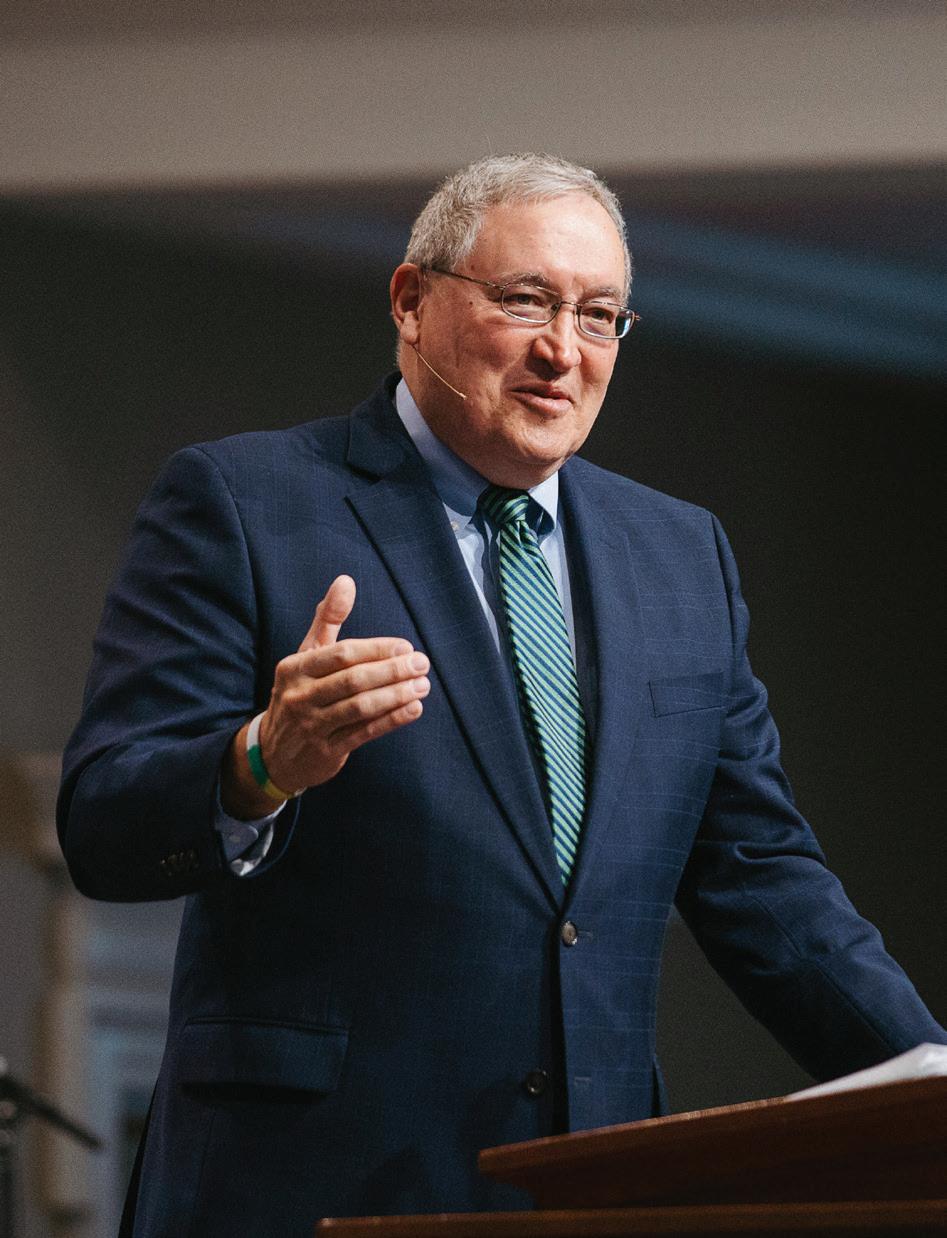
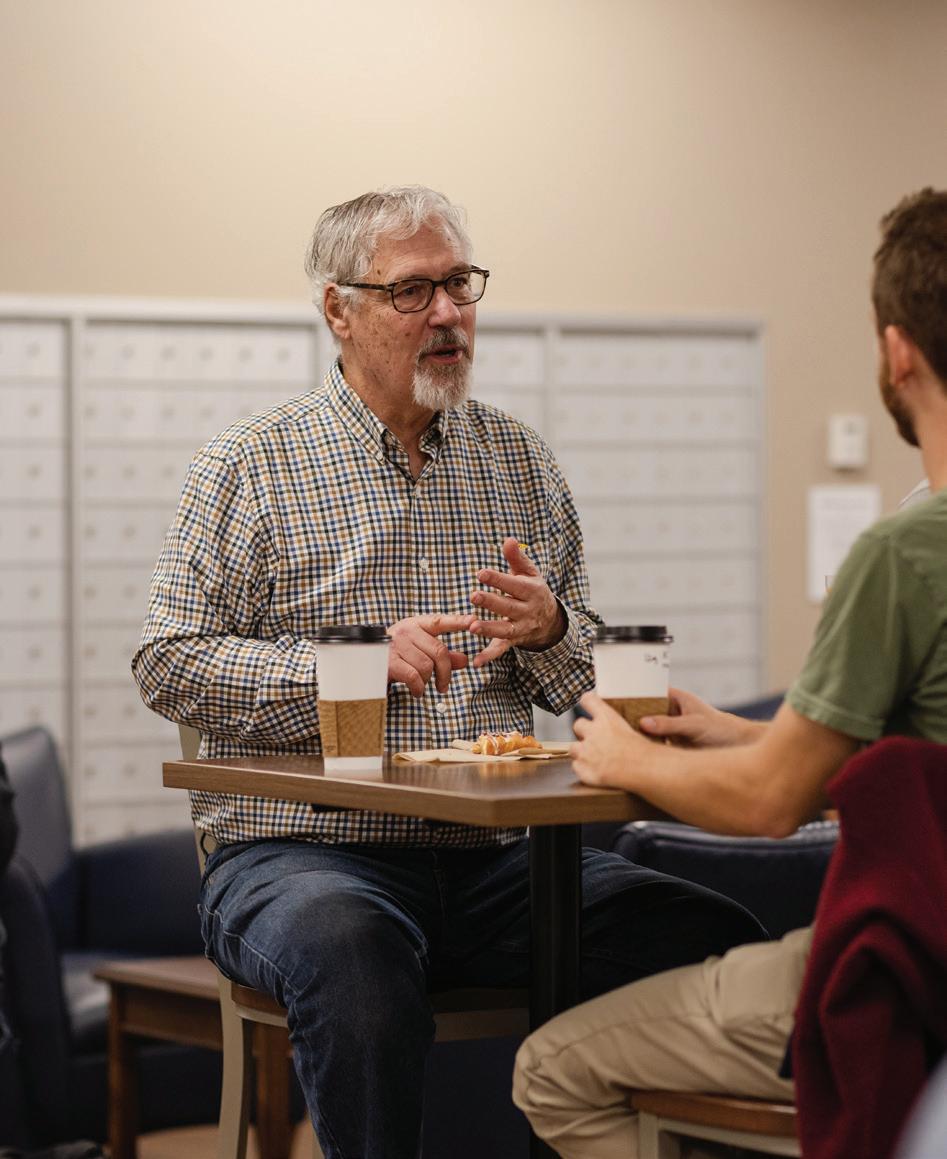 George Martin
George Martin
G REGORY A. W ILLS SPRING 2024 23
Timothy Beougher
he served on the faculty of North Greenville University before coming to the Billy Graham School. Martin has passed on his passion for foreign missions to a generation of students, and he has led many of them on mission trips around the world.
Beougher and Martin continue to shape students for faithful service alongside a cadre of remarkable scholar-practitioners who have joined them on the faculty of the Billy Graham School. Te school has stamped its commitments on a number of disciplines that have been incorporated into it in the years since its founding as the seminary sought unite the various practical ministry-related disciplines in the Billy Graham School. Te faculty now provides excellent training in Biblical Counseling, Biblical Worship, Christian Leadership, and Educational Ministry, in addition to training in Evangelism, Church Planting, Missions, Islamic Studies, and World Religions.
Te faculty of the Billy Graham School has exemplifed the power of careful scholarship in the service of practical ministry. Te faculty are experienced practitioners of the academic disciplines that they teach in the classroom. Tey have served as pastors, evangelists, missionaries, counselors, apologists, and ministry leaders. Many serve concurrently in such roles. Tis experience in ministry is an essential component of efective seminary training. Te Billy Graham School has now trained an entire generation of faithful pastors, missionaries, church planters, worship leaders, biblical counselors, and other ministry leaders.
Only eternity will reveal the true signifcance of the founding of the Billy Graham School in 1994. How many pastors have been enabled to witness and lead sinners to Christ because of the training they received in the school’s courses? How many laypersons have been equipped to do the same because their pastors were trained to equip others? How many evangelists now fearlessly share the gospel in the diverse languages of the nations around the globe because missionaries trained in the Billy Graham School shared the gospel with them, led them to Christ, and prepare them to witness? Surely it is true, as Mohler observed at its beginning, that the founding of the Billy Graham School was “one of the most historic moments in the life of Southern Seminary.”
24 THE SOUTHERN BAPTIST THEOLOGICAL SEMINARY T HE H ISTORY AN D S IGNI F ICANCE O F THE B ILLY G RAHAM S CHOOL

"The Billy Graham School has now trained an entire generation of faithful pastors, missionaries, church planters, worship leaders, biblical counselors, and other ministry leaders."
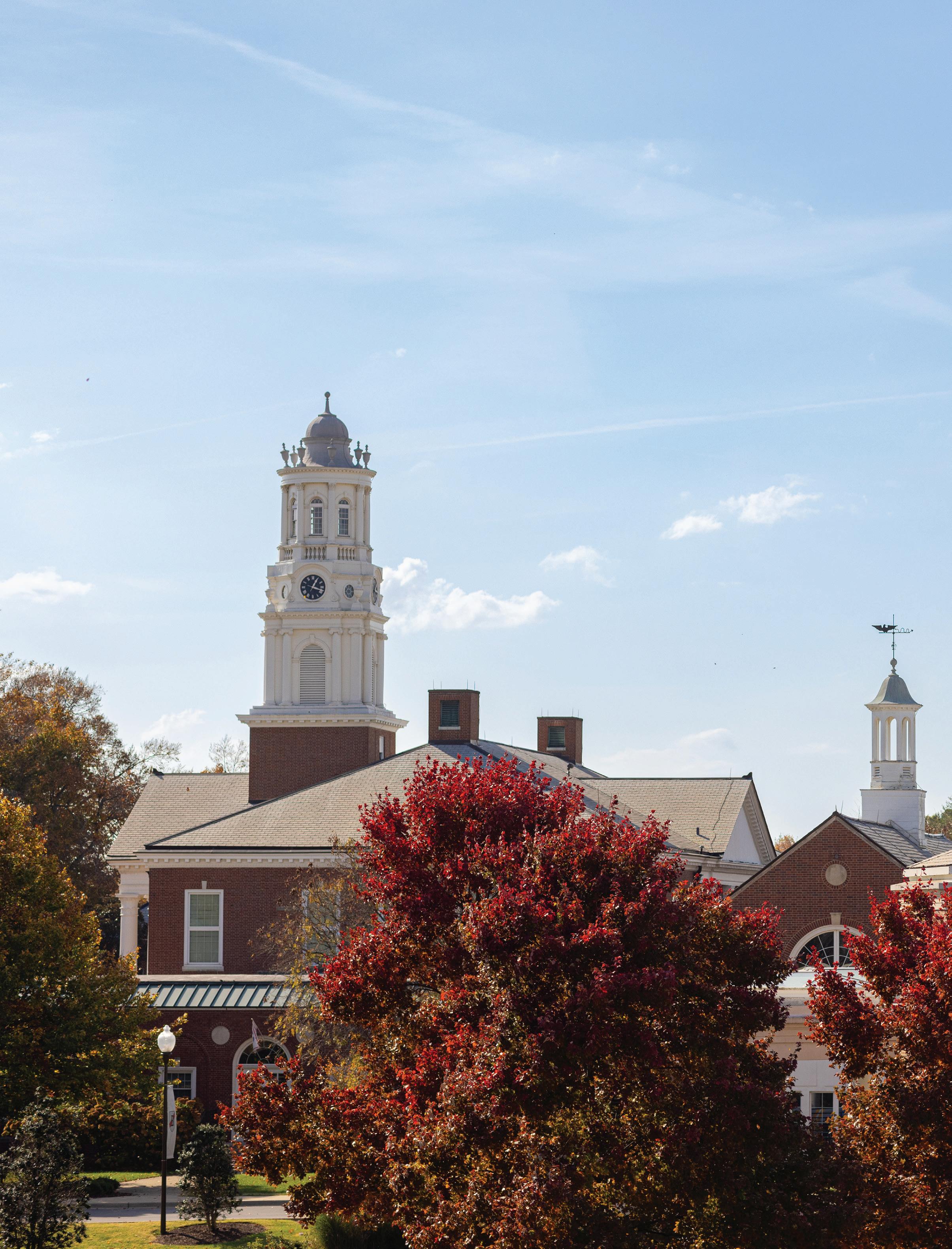
26 THE SOUTHERN BAPTIST THEOLOGICAL SEMINARY
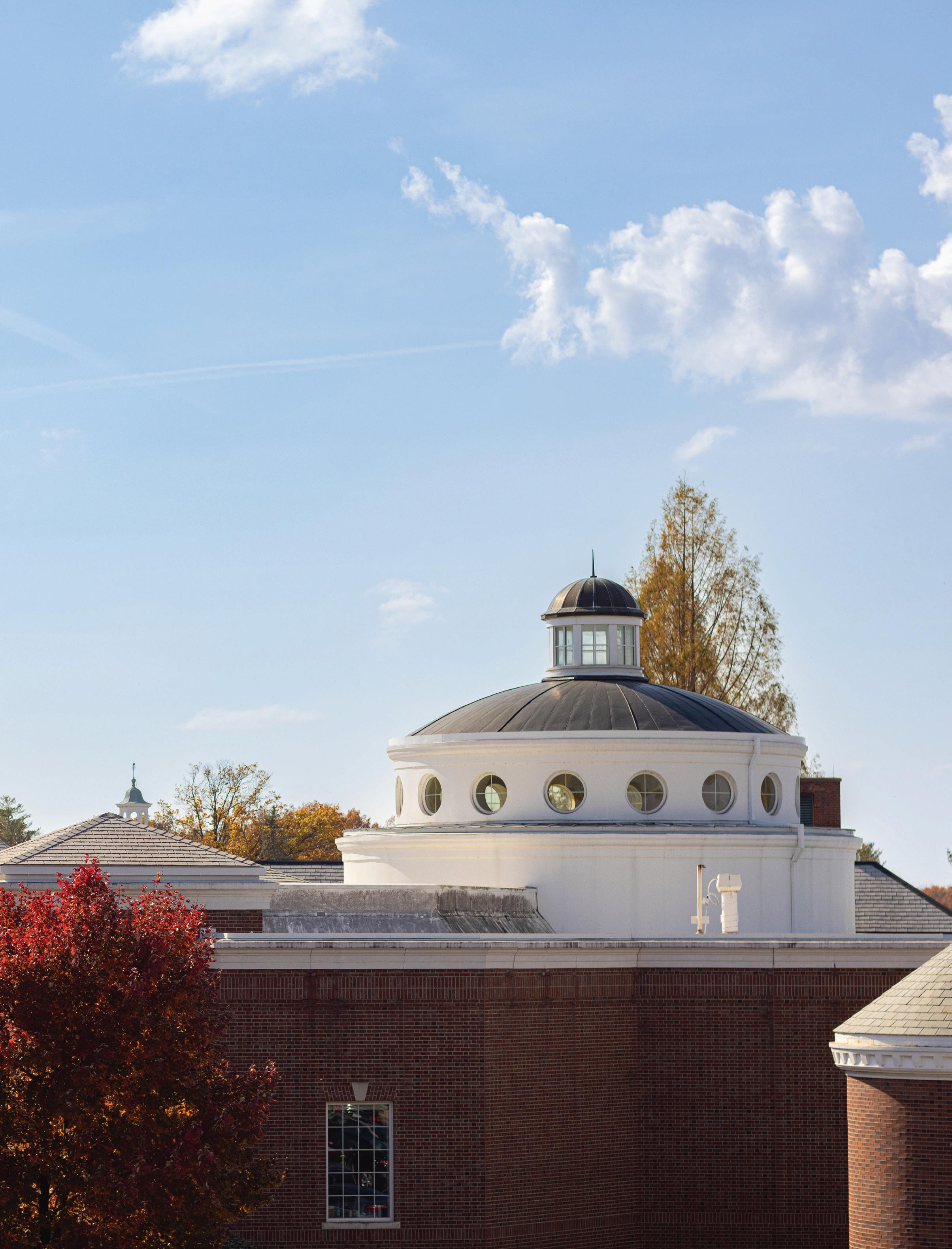
SPRING 2024 27

28 THE SOUTHERN BAPTIST THEOLOGICAL SEMINARY
Workers Unashamed: Our Vision for the Billy Graham School
JEREMY PIERRE
Nothing beats the rich scent of earth. We catch that scent in springtime, when the ground is soaked with the early rains, sofened and ready for green things to emerge. Most of us only notice it then, mainly because it invades our regular trafc pattern as we move from the car to the ofce or take walks around the neighborhood. You can't miss it in the springtime.
But some folks smell dirt far past spring. In fact, that's only the beginning for them. Tey smell dirt long into summertime and eventually into autumn. Tey live on it and work in it. And by the end of the season, they even smell like it themselves. You probably know who I'm referring to: farmers, the steady workers of the earth.
Our Lord Jesus Christ once said, “ Te harvest is plentiful, but the laborers are few. Terefore pray earnestly to the Lord of the harvest to send out laborers into his harvest” (Luke 10:2). Tis was when Jesus frst commissioned workers and sent them on ahead of him. He is doing the same today.
Te earth needs these steady workers. Dirt receives the seed and retains the water that nourishes that seed. It houses the mystery of the underground growth and anchors the growth aboveground as it reaches skyward. Te entire enterprise depends on the dirt. But without someone to tend to that dirt, production doesn't happen. Without men and women handling dirt—grading it, treating it, plowing it, weeding it, watering it, running their machines over its contours—there is no harvest.
SPRING 2024 29
Ministry is work, and it needs steady workers. Te purpose of the Billy Graham School of Missions, Evangelism, and Ministry is to prepare students to work, and to work hard. We don't want our graduates to have full heads without tired arms. Tey go together. In fact, they have to. Te best workers combine knowledgeable insight and practiced skill.
Workers Unashamed
One of Paul’s favorite terms of afection for his partners in gospel ministry is workers. He used it ofen—my fellow workers in Christ. Tere is great honor in such an acknowledgment. Tese folks had labored alongside him, and Paul wanted to ensure they were properly regarded for that labor. Paul used this phrase in many of his letters (Rom 16:3-21, 1 Cor 2:9, 2 Cor 8:23, Phil 2:24 & 4:3, Col 4:11, Phile 1).
But the best known occasion of Paul using the term worker may be his charge to Timothy, "Do your best to present yourself to God as one approved, a worker who has no need to be ashamed, rightly handling the word of truth" (2 Tim 2:15). To this young man he’d invested in, Paul said to be like a farmer—or an athlete or soldier—who toils under the commitment to see the work completed.
Paul's admonition for Timothy to work has a few key features. For one, it requires maximal efort. Do your best is not an inspirational quote for a schoolroom poster but a command to face the pain of exertion. Work is tough because it means overcoming obstacles toward accomplishment, and without an eager willingness to take on that pain, we will be lax. Another feature is that
work is presented to God for approval. We all work for someone, and that person evaluates the acceptability of our work. Christians work not just for earthly supervisors, but for God. And when we work according to his direction, we are unashamed before him. Te fnal feature of work is what we handle in our labor—namely, his Word. Our job is not to invent what we proclaim but to convey it faithfully.
Faithful work requires both knowledge and skill. A worker has to know the nature of his work—the characteristics of his particular land, the needs of his diferent crops, and the market demand for his produce. But knowledge is not enough. Knowledge compels wise action. Tat's what skill is—the ability to act efectively based on an accurate perception of the task.
Te Unique Work of Each Department
Each department in the Billy Graham School uniquely contributes to the larger work of Christian ministry. Tat’s the nature of specialization—diferent types of training for diferent callings, according to God’s unique gifing of each person. We want to prepare everyone for his or her work.
Jesus Christ will be worshipped by every tribe and tongue, and we want to be part of it. In the various degrees in missions and evangelism, we build on the theological foundation of the gospel with knowledge of human culture and the history of missions. As students think rightly about the nature of gospel witness, we test their ability to proclaim the work of Christ, to train and lead others, and to evaluate various
30 THE SOUTHERN BAPTIST THEOLOGICAL SEMINARY W OR K ERS U NASHAME D: O UR VISION F OR THE B ILLY G RAHAM S CHOOL
strategies in missions. In a nutshell, we want to form students who are zealous for good works and grounded in who Jesus Christ is and how he establishes his church through the gospel.
Jesus Christ is the only way of salvation for our Muslim neighbors here and around the world. In our Islamic Studies degree programs, we start with the gospel of Jesus Christ, including who God is and how he saves, as distinct from every other religion. We study classical Islam and the Arabic language so that we might understand our Muslim neighbors and how to communicate the gospel to them efectively. We hope that the Christian understanding of Islam will allow our students to minister directly to Muslims and equip the church to hold fast to the faith once for all delivered to the saints.
People were made to understand their own lives in relation to God. Our degree programs teach students how to properly interpret human experience in light of God’s purposes revealed in Scripture. We teach students to recognize the complexity of a person's experience while centering spiritual care on the gospel of Jesus Christ. We want students formed with wisdom, compassion, and integrity to practice the counseling skills of observation, interpretation, and guidance. Our goal is to produce graduates who are confdent that the Word of God transforms people’s hearts to respond in faith to the troubles they face.
All of life is worship, but gathering as God’s people to worship in song

J EREMY P IERRE SPRING 2024 31
is one of the most precious privileges of being in the church. At the masters and doctoral level, our biblical worship degrees center on a biblical theology of worship, of the church as the gathered people of God, and of music as God’s gif for expression. Te skills we seek to forge in students all revolve around service to the people of God based on the Word of God, including service planning, service presenting, and musicianship. We want to form students with an infectious, knowledgeable love for God who skillfully lead others to express that love together in song.
Growth in God’s people is not automatic but requires servant leaders to disciple people according to God's design. Degrees in Christian leadership, discipleship, and education equip students for various roles leading others on the development journey as disciples of Jesus Christ. Building on a theological foundation of discipleship, we help students understand organization and administration, as well as instructional design and evaluation. We wish to form students with the humility, courage, and competence to lead and instruct God’s people in a variety of settings.
Billy Graham & Work
I don’t know if Billy Graham liked the smell of dirt, but he did grow up on a farm. More importantly, he knew how to work. I have no doubt that what Billy Graham observed on that farm shaped in him a workman’s mentality when it came to the task of evangelism. He was a workman.
In fact, Graham saw the work of gospel ministry as an extension of the regular work
that makes up the daily life of any Christian. He encouraged all believers to see their work from God’s point of view.
Let’s be honest; work isn’t always exciting, and when we focus only on its problems or spend our time wishing we were doing something else, we’ll probably end up resentful, angry, or bored. But when we begin to see our work from God's point of view, our attitude will be much diferent. We'll begin to realize that God gave our work to us, and because of this, it has dignity and importance.1
Graham knew the dignity and importance of any type of work because, by our work, we worship the Lord. He applied a workman's mentality to gospel proclamation. Graham knew that the gospel is sufcient to save and that its sufciency includes the people commissioned to proclaim it. And that means a lot of work—knowledgeable, skillful work.
Our vision for the only graduate school allowed to bear the name of Billy Graham is to produce graduates who exemplify the humble courage of steady work. We believe the Lord has chosen to spread his glory across the world through workers with love in their hearts and the gospel on their lips. And a good amount of dirt on their hands.
1 From the Billy Graham Answers Series. Billy Graham Association. https://billygraham.org/answer/work-is-a-gif/
32 THE SOUTHERN BAPTIST THEOLOGICAL SEMINARY W OR K ERS U NASHAME D: O UR VISION F OR THE B ILLY G RAHAM S CHOOL
Even Preachers Need Teachers

“Being a pastor presents challenges unlike any other profession. If you are a pastor and you mishandle the gospel, you can condemn people for eternity by not telling them how they can be delivered from their sins. Tat’s a weight that pastors feel all the time.”
Dr. Hershael York
Professor of Christian Preaching
Te Southern Baptist Teological Seminary
Host of Te Pastor Well Podcast
Learn from scholars who are pastors: THE PHD IN CHRISTIAN PREACHING AT SOUTHERN SEMINARY SBTS.EDU/PREACH
Your Master of Divinity: Personalized
Tailor Your Degree around Your Ministry Goals
Southern Seminary has introduced greater personalization to the Master of Divinity degree. Te foundation of the simplifed MDiv is a core of 21 credit hours in each of these ministry disciplines: biblical studies, theological studies, practical studies, and specialized electives.
Te specialized electives ofered through Southern’s new MDiv allow students to customize their education to match their unique ministry calling. Te benefts to students are greater personalization, increased specialization, and the opportunity to earn more credentials in an efcient amount of time. Personalizing this degree demonstrates how Southern’s MDiv prepares you for a lifetime of faithfulness.

Explore how personalizing your Southern MDiv helps accomplish your ministry goals at sbts.edu/newmdiv
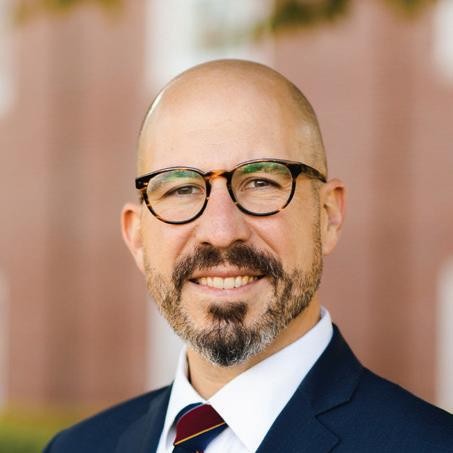
"Our
vision for the only graduate school allowed to bear the name of Billy Graham is to produce graduates who exemplify the humble courage of steady work."
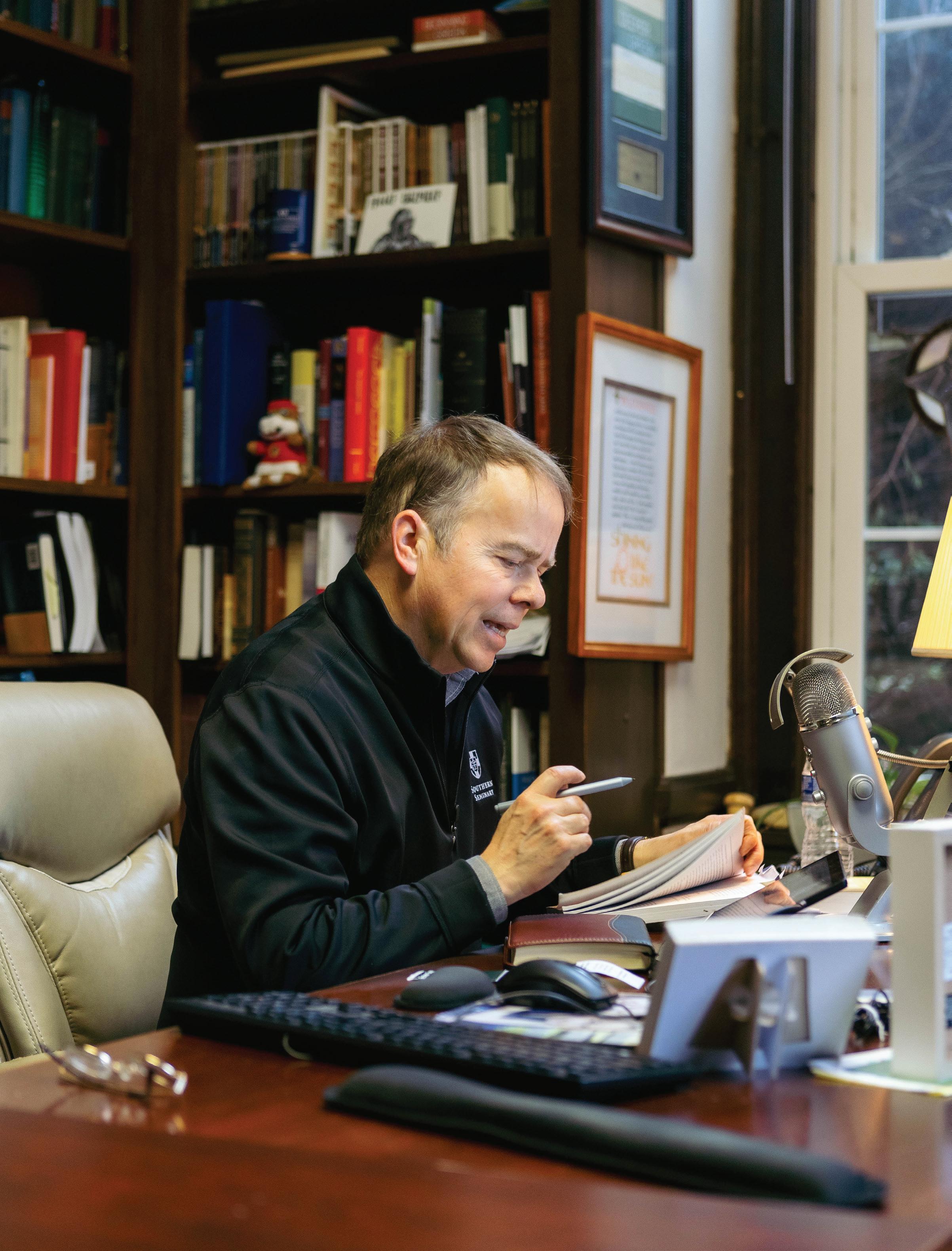
36 THE SOUTHERN BAPTIST THEOLOGICAL SEMINARY
THE SOUTHERN BAPTIST THEOLOGICAL SEMINARY
News & Features
Bringing Ancient Texts to Modern S creens: Inside the ‘Daily D ose’ Ministries
By Travis Hearne
He sat perfectly still. Te room grew silent except for the hard drive’s hum and the breeze whistling outside Robert Plummer’s study. Te New Testament Professor stared at the enlarged monitor displaying a full screen of one Greek sentence.
Just a scholar and a text. Afer gathering his thoughts and hitting the record button on his controller, he leaned forward and tested his microphone. Tose contemplative moments would soon fll thousands of inboxes in over 100 countries with a voice now familiar to Daily Dose of Greek subscribers.
In the last year alone, Daily Dose of Greek videos received 2,450,205 views. Each of those views began the same way—with Plummer’s stillness and silence followed by his translation and exegetical guide to the text.
Plummer is a master interpreter and teacher of the Bible’s original languages, so the recording process is straightforward. He blocks of a few hours of his busy schedule to record 5–10 daily doses at a time. A former student provided Plummer
with the considerable monitor that makes his studio efcient and a Microsof Surface Pro tablet to mark up the text he copied from his computer. Plummer uses the sofware called BibleWorks, which gives him all of the textual tools he may need, including lexicons and original manuscripts. On his desk also lies a few technical commentaries if he needs any further perspectives.
“If I’m not happy with it, we will do it again,” Plummer said as he deleted the recording to begin anew. “Sometimes I’ll record later in the day so my voice is waking up. It’s also essential that they aren’t blowing leaves or mowing outside. But I have to get over perfectionism.”
Tis was a typical recording day. Ideally, Plummer and the Daily Dose ministries stay two to three months ahead of recordings. Te process is a well-oiled machine at this point with a staf of administrators and volunteers. But the Daily Dose of Greek had humble beginnings when Plummer recognized a burden for students slipping in their Greek knowledge afer seminary. A student who soon became a friend ran with Plummer’s idea for a couple of minutes a day of Greek accountability and launched the Daily Dose of Greek.
“I feel a great sense of stewardship,” Plummer said. “We launched it and promoted it
through social media. Not long afer we launched, Justin Taylor and John Piper tweeted about it, so it drastically grew. God has given this to me, and it's not something I deserve. Tere are better Greek scholars and teachers, but God has given me this ability and opportunity. It’s very rewarding. I get letters and emails almost every day from people who stay encouraged by our ministry at Daily Dose.”
Most of the Daily Dose of Greek subscribers are pastors looking to stay sharp in their Greek. But Plummer never knows exactly who's watching, and the community is continually expanding.
“Sometimes it’s fun to hear from famous people,” Plummer said. “ Te Chaplain of the Queen of England talked about how helpful it was. Te typical viewer is a pastor who wants to keep his Greek, and this draws them deeper into the Scriptures so that they can be better preachers and teachers. But I know we have homeschooling moms, retired math professors from Japan, and construction guys all watching to become greater handlers of God’s Word in the original language.”
Plummer recognizes the bond that comes when people hear his voice and connect over a shared appreciation for God's Word. He and the rest of the Daily Dose Ministries try to foster this sense of community.
SPRING 2024 37 NEWS & F EATURES
“It’s strange to meet people who feel like they know you very well,” Plummer said. “But it’s like a family. We have mugs, Christmas ornaments, and other fun things to build comradery within the Daily Dose subscribers. It's amazing how the Scriptures can bring diverse people together and bring us closer to Christ. Sometimes, when recording, I think about the diversity of the people who will be watching, and I pray that God will use them.”
Plummer may be the voice and penman marking up the text. But PhD candidate and Director of Online Learning Jonathan Ahlgren, is who Plummer calls, the “secret sauce” of Daily Dose.
Ahlgren served as a pastor in rural Pennsylvania when Dr. Plummer launched the Daily Dose of Greek.
“I subscribed from day one,” Ahlgren said. “I had already recognized the need for seminary online theological education and free online resources for pastors and missionaries. At this same time, I also had a desire to dive deeper into the Biblical languages myself and take part in theological education long-term. Tese two realities led my family back to Louisville in 2016 for me to pursue a PhD in Old Testament and eventually to serve as the director of Online Learning at Southern Seminary. I connected with Adam Howell and Plummer early on, ofering help with anything they needed. I made myself available to them and worked diligently to maximize their skills and calling. Tis work is essentially what I continue to do today.”
Ahlgren is the primary administrator of all the Daily Dose ministries. Tis role includes training new contributors and content managers for each website. Afer Plummer uploads his unedited recording into a Dropbox, Alhgren picks it up and gets it to inboxes worldwide.
“Our mission is focused on the Daily Dose viewers,” Ahlgren said. “I am overjoyed to help Christians remain close to the text by reading it every day in its original languages. With my weekly workload, I get to personally partner with the most godly and skilled scholars in Greek, Hebrew, Aramaic, and Latin to develop daily videos: Plummer, Howell, Scott Callaham, Tyler Flatt, Roberto Carrera, Hanbyul Kang, and our Chinese contributor.”
Te Daily Dose team is expanding its reach through a Daily Dose of Hebrew in Chinese and a Daily Dose of Greek and Hebrew in Portuguese. Te goal is to have daily videos going through the Greek New Testament and
Hebrew Old Testament in every major language.
In the last year, total yearly views across all English Daily Dose Websites reached 3,504,644.
“I want to get the word out that there are so many 'Daily Dose' videos going out each day across many languages,” Ahlgren said. “We have the Daily Dose of Greek, Hebrew, Aramaic, and Latin in English. Beyond these English videos, we have the Spanish Daily Dose of Greek and Hebrew, the Korean Daily Dose of Greek, and the Chinese Daily Dose of Greek.”
“We are partnering with believers and local churches worldwide as they fulfll the Great Commission,” Ahlgren said. “As Christians read the Word of God and rightly proclaim these inspired words, God will bring salvation to the ends of the earth.”
Join the community and have the tools for reading the Bible in its original languages in your inbox today.
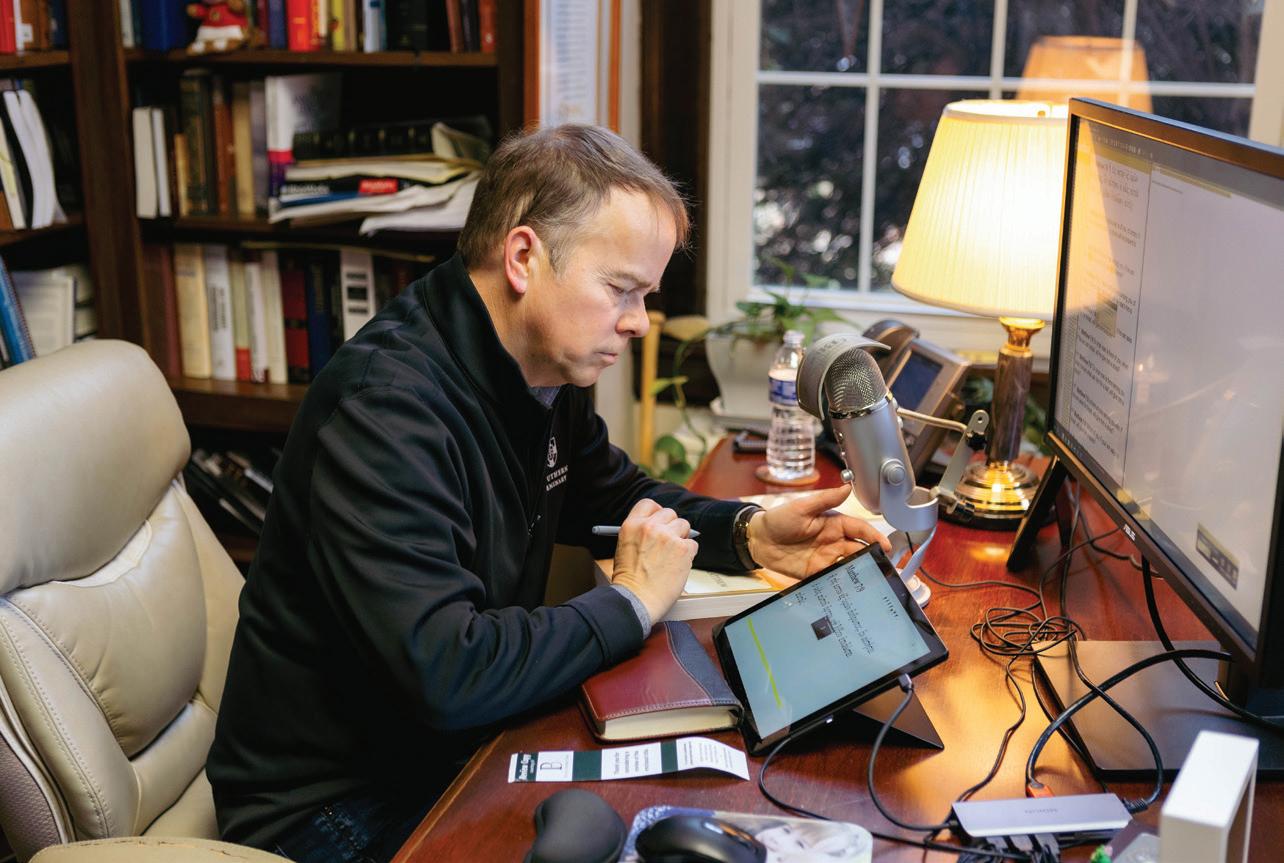
38 THE SOUTHERN BAPTIST THEOLOGICAL SEMINARY NEWS & F EATURES
Dr. Plummer recording a Daily Dose of Greek
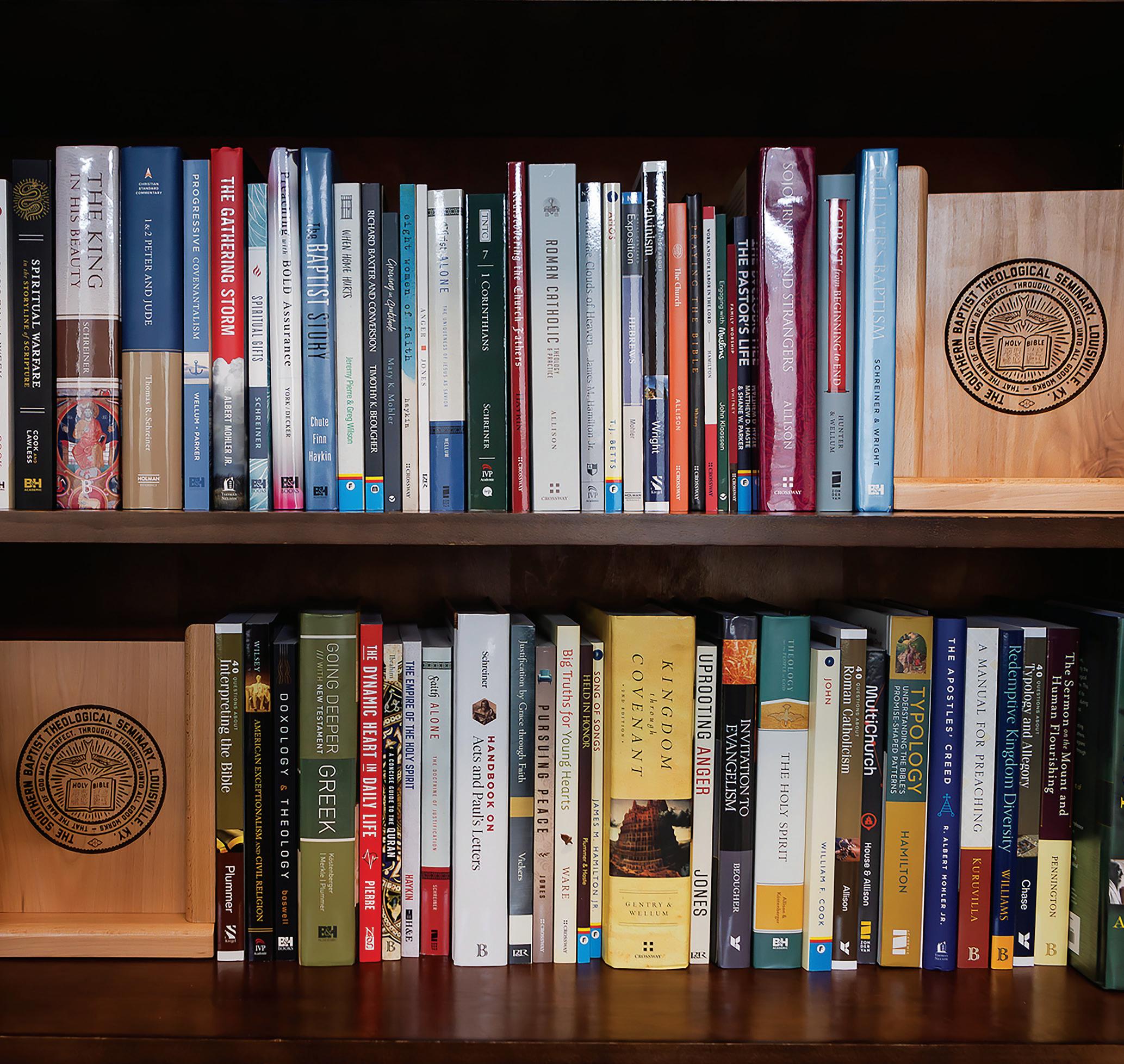
Ready to Build Your Library?
Visit the Bookstore at Southern, the largest theological bookstore in North America. From biblical commentaries to church history, we have everything you need to deepen your love of God and his Word and build your library. Our collections range from the newest releases to an extensive collection of high-quality used books!
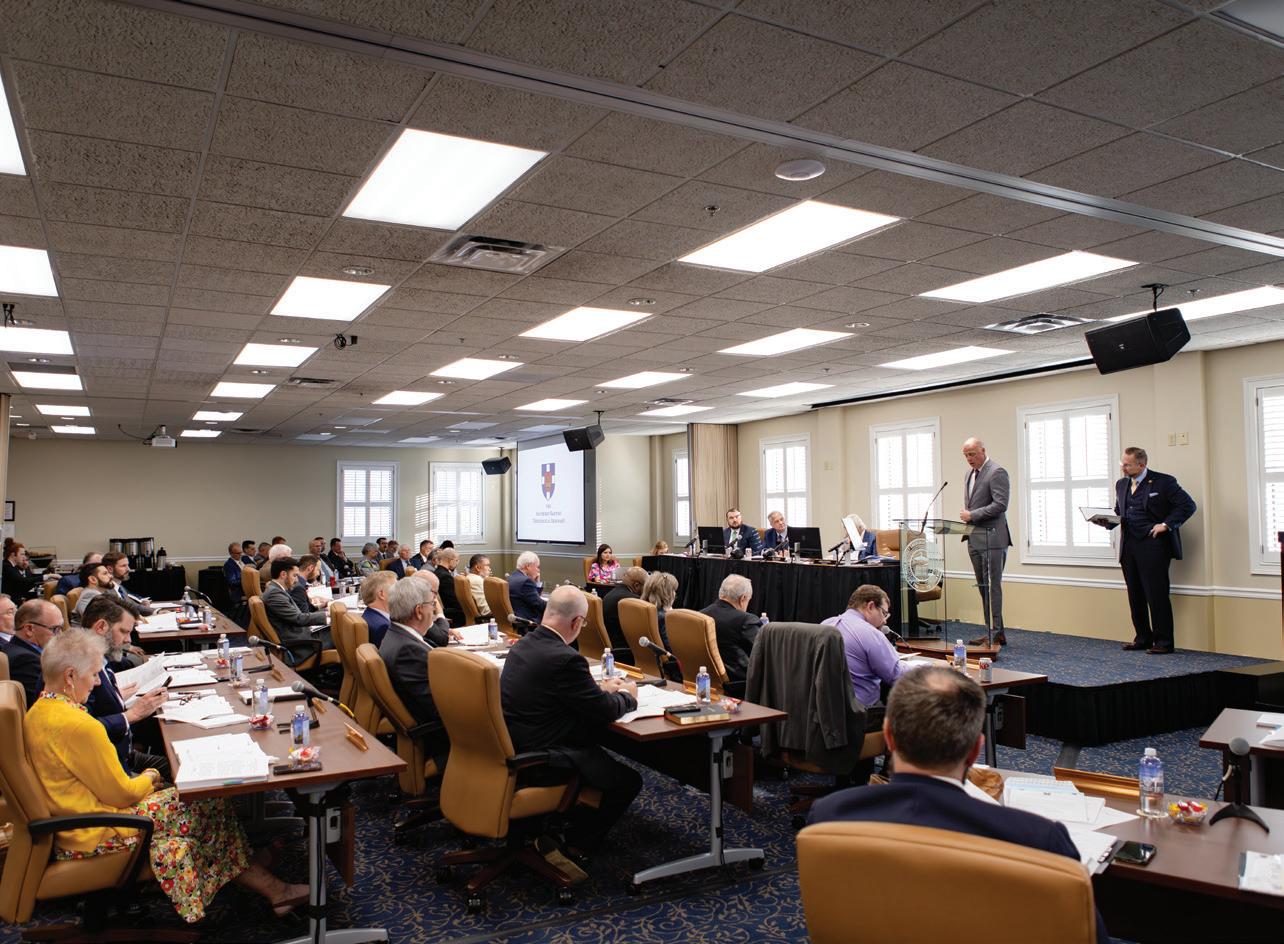
Trustees Affirm Health of Institution and Elect Keith Daniels Chairman of the B oard in Spring Meeting
By Jacob Percy
Te trustees of Te Southern Baptist Teological Seminary met Monday for their annual Spring meeting, during which they approved the budget, elected new board ofcers, elected faculty, and honored outgoing board members.
“Southern Seminary is a testimony to God’s faithfulness, said Joshua Powell, current board chairman. “Under the stewardship of Dr. Mohler the school continues in the healthiest of fnancial stability. Tis board meeting was clear evidence of the health and blessing of God on Southern.”
As a testament to God’s faithfulness, Southern Seminary
and Boyce College continue to have growing enrollment and strengthened fnancial position, allowing the trustees to move to adopt a $53.4million operating budget for the 2024-2025 Academic Year, a 2.36% increase over last year.
Te board unanimously elected Keith Daniels as chairman of the trustees, replacing Joshua Powell, who has served in that role for the past two years. Afer a long career as an HR professional in corporate America, Keith retired as an entrepreneur and owner of Christian Brothers Automotive in Grapevine, TX. He is an elder at MacArthur Boulevard Baptist Church in Irving, Texas. Keith is married to Sharon, his wife of 37 years, and they have two daughters, Marissa and Makayla.
Speaking on his election as board chairman, Daniels said, “I am grateful for this opportunity and consider it an honor to serve as the next Chairman of the Board
of Trustees at Southern Seminary.” He continued, “More than the privilege to serve our institution, I am grateful for the greater privilege to serve the broader kingdom of Christ as we continue to invest in the preparation of the next generation of leaders for the sake of the gospel.”
Trustees also elected other ofcers, including Bill Sones as frst vice chairman, Bill Behrens as second vice chairman, Bruce Chesser as secretary, and Jeremy Rhoden as fnancial board chairman.
In other business, the board unanimously elected four faculty members, including Dustin Bruce as Associate Professor of Christian Teology and Church History, Matthew Haste as Associate Professor of Biblical Spirituality and Biblical Counseling, Andrew Walker as Associate Professor of Christian Ethics and Public Teology, and Matthew Westerholm as Professor of Church Music and Worship. Trustees
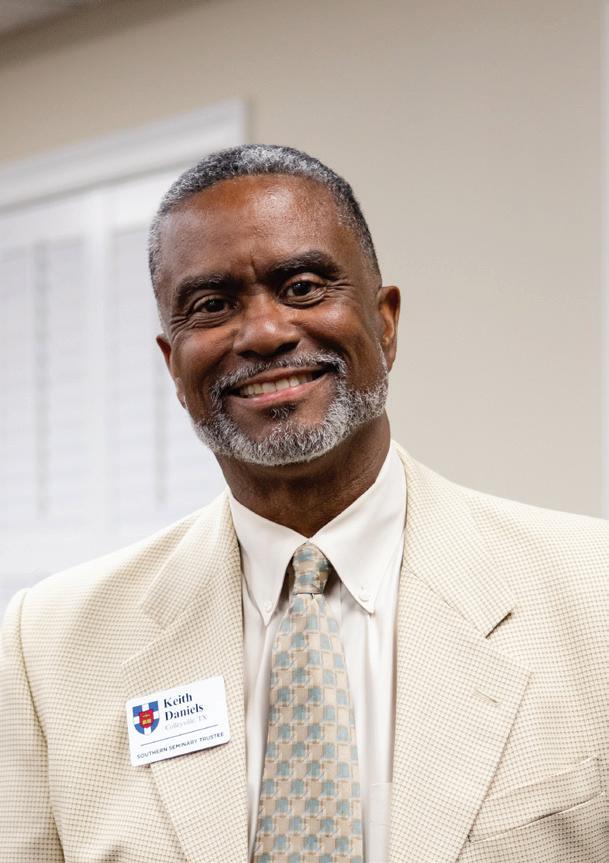 Chairman Keith Daniels
Chairman Keith Daniels
40 THE SOUTHERN BAPTIST THEOLOGICAL SEMINARY NEWS & F EATURES
Board of Trustees spring meeting
also approved sabbatical leave for professors Stephen Wellum, Shawn Wright, Jim Hamilton, and Andrew Walker.
Te trustees also approved the promotions of four faculty members: Dustin Bruce, promoted to Associate Professor of Christian Teology and Church History; Robert Jones, promoted to Professor of Biblical Counseling; Matthew Westerholm, promoted to Professor of Church Music and Worship; and John Wilsey, promoted to Professor of Church History.
Trustees honored the faithful service of three trustees who are rotating of the board afer the conclusion of their terms of service: Rick Stabb (KY), Jim Henry (FL), and Tom Rush (GA).
In refecting on the Spring meeting, President R. Albert Mohler, Jr. said, “I am very thankful for this meeting of our board of trustees. Once again, our board has shown itself faithful in its stewardship and in fulfllment of the task assigned by churches of the Southern Baptist Convention. I am thankful that in every respect we were able to report health and God’s continued blessings.” Mohler continued, “At this trustee meeting, we observed a historic change in leadership. I want to express profound appreciation to pastor Josh Powell, pastor of Taylors Baptist Church in South Carolina, for his outstanding leadership over the course of the last two years. We are so pleased that Mr. Keith Daniels, a businessman from Dallas, TX, has been elected chairman of the board to give outstanding leadership as we look to the future.”
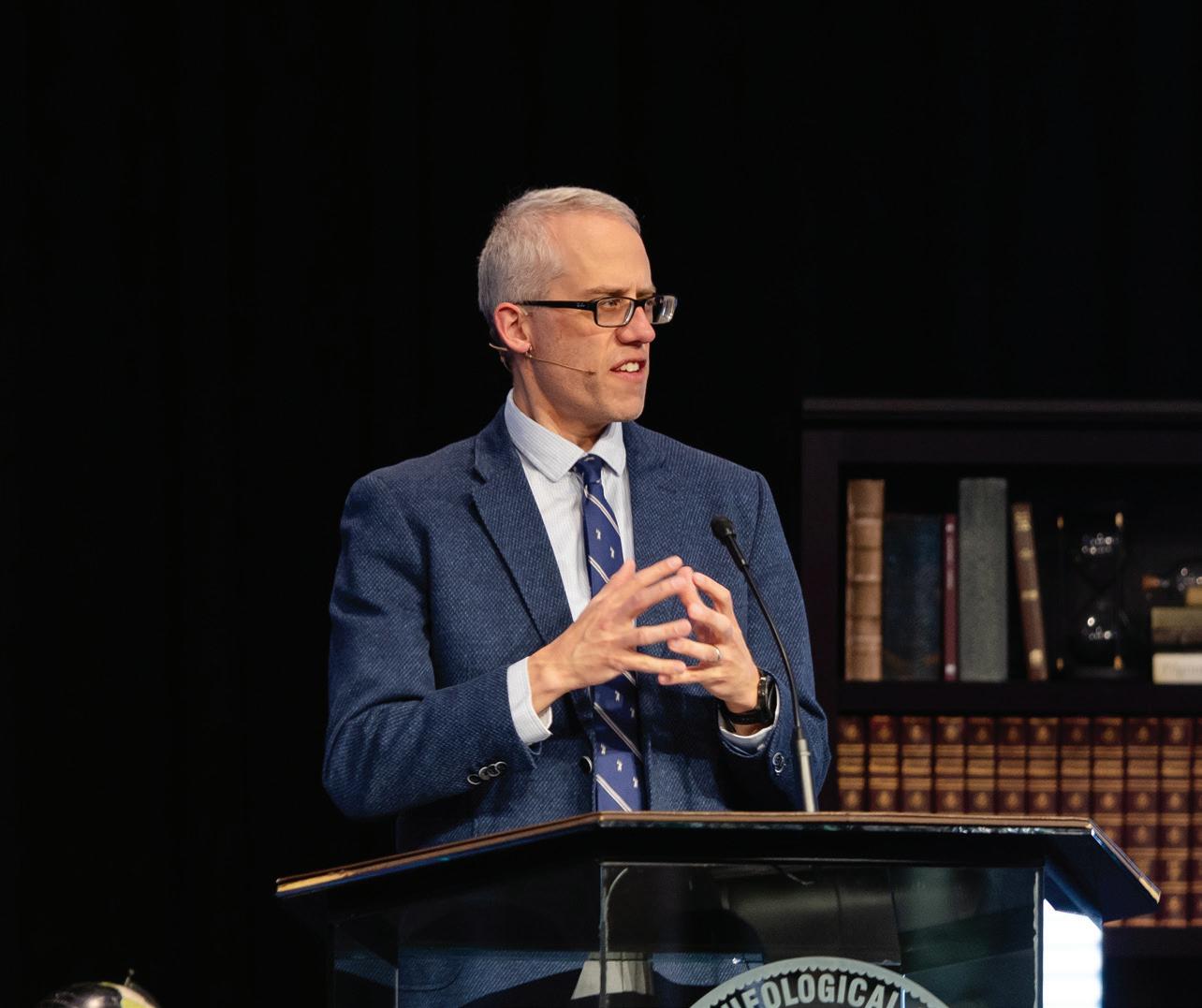
Kevin DeYoung Preaches at Chapel, Delivers E.Y. Mullins L ectures
By Travis Hearne
Distinguished author, podcast host, professor, and pastor Kevin DeYoung spoke at Chapel for Te Southern Baptist Teological Seminary and presented the historic E.Y. Mullins lecture series March 19–20.
DeYoung (PhD, University of Leicester) is the senior pastor at Christ Covenant Church in Matthews, North Carolina, and associate professor of systematic theology at Reformed Teological Seminary, Charlotte. He has written books for children, adults, and academics, including Just Do Something; Crazy Busy; and Te Biggest Story
“Sometimes we need to step back and do the obvious, though painful, right thing to do,” DeYoung said in his chapel message from Genesis 39. “ Te Lord sticks close to those who will stick close to him. God is with us even when no one else is.”
During the Mullins lectures, DeYoung ofered three lectures on improving preaching. Te frst lecture, titled “ Tree Indispensable Requirements for Good Preaching,” laid a foundation for understanding expository preaching as getting to the meaning of the text and what to do with it.
Te second lecture examined the Puritan understanding of preaching and ofered historical insights for pastors wanting to approach preaching as expository, doctrinal, orderly, plainly, and focused on Christ.
In the third lecture, DeYoung ofered ten suggestions for how
SPRING 2024 41 NEWS & F EATURES
Kevin DeYoung delivered the E.Y. Mullins Lectures on preaching
preachers can make progress in improving their pulpit ministry:
1. Preach the right sermon from the right text.
2. Make sure your best stuf comes from the closest attention to the text.
3. Have preaching heroes and be willing to disagree with them.
4. Aim for simplicity.
5. Work hard for clarity.
6. Don’t be lopsided.
7. Don’t be afraid of variety.
8. Preach the meaning and mood of the text.
9. Elevate and respect the uniqueness of the preaching event.
10. Preach with confdence.
“Your job as preachers,” DeYoung said, “is to just keep sowing seeds. Let the Lord do what he wants with the seed. In the parable in Mark 4, Jesus says that the farmer sleeps and goes to bed. When he wakes up, he knows not how it grows by the power of the germinating seed of the Word of God. God will bring the growth. Let us have confdence that he will.”
A Christian America?
Thomas Kidd Delivers
Julius B. Gay L ectures
By Travis Hearne
Noted historian and professor Tomas Kidd delivered three lectures at Te Southern Baptist Teological Seminary as part of the Julius B. Gay lecture series,
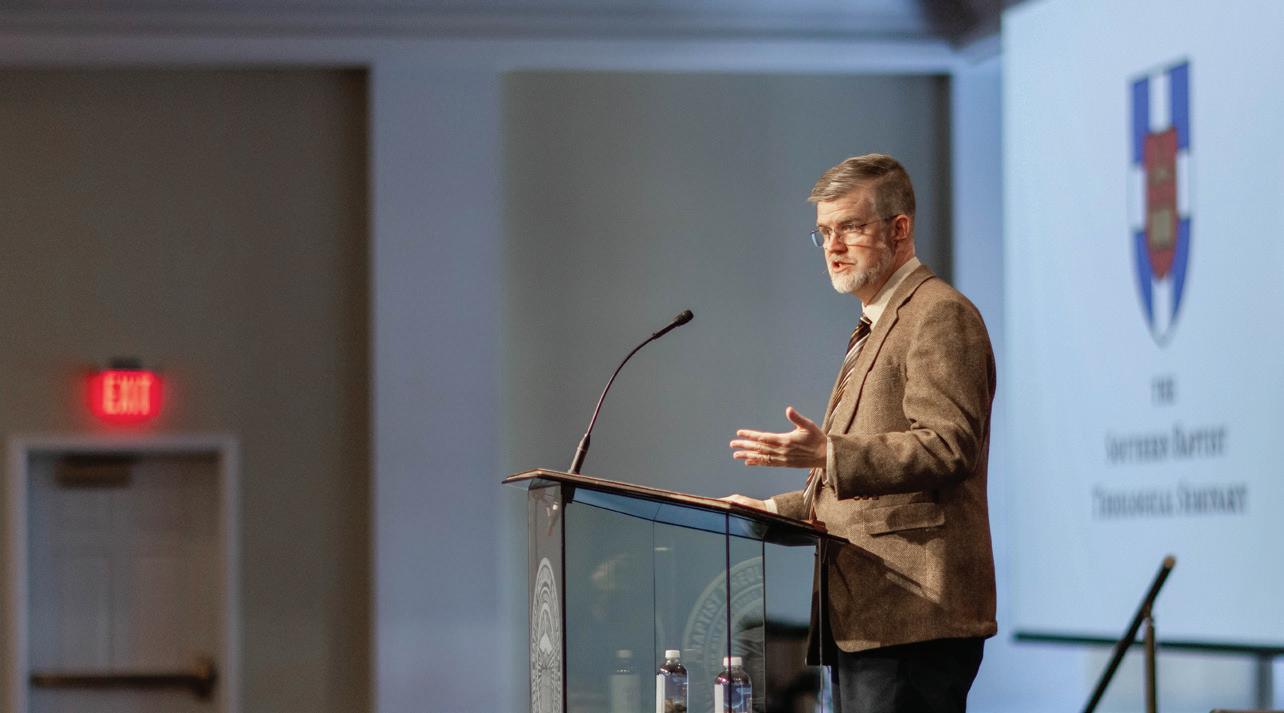
February 13–14. Afer serving as a Distinguished Professor of History at Baylor University, Kidd now serves as a Research Professor of Church History at Midwestern Baptist Teological Seminary and the John and Sharon Yeats Endowed Chair of Baptist Studies. He has authored numerous books including Tomas Jeferson: A Biography of Spirit and Flesh (Yale University Press, 2022) and Who Is an Evangelical? Te History of a Movement in Crisis (Yale University Press, 2019).
Kidd’s lectures, “A Christian Nation? Faith and the American Founding,” covered three topics relating to the role of Christian faith in the founding generation.
Were the American Founders Christians?
In the frst lecture, Kidd directed the audience to the writings of patriots such as Patrick Henry and Tomas Paine, and documents such as the Declaration of Independence to show that America’s founding generation had complex views about God and Christianity. Tese early American fgures utilized the
language of Scripture to sanction the American Revolution but were met by the challenges of forced taxation to support established religion and slavery.
“Americans in 1776 were quick to seek divine approval of the Revolution,” Kidd said. “But that didn’t necessarily mean that those asking for God’s blessing were Christians. Many patriots were Christians, but several top-tier founders weren’t Christians in the sense that the Great Tradition of Christian theology would recognize as believing in the Trinity and the divinity of Christ.”
What is the Je ferson Bible?
In the second lecture, Kidd explained Tomas Jeferson’s understanding of Christian theology by focusing on the private cut-and-paste bible he kept of Jesus’s teachings known as the Jeferson Bible. Kidd stressed that Jeferson cultivated a devout faith and considered himself to hold to the Christian ethic, but Jeferson’s views of Scripture and orthodox theology placed him outside the scope of historic Christianity.
42 THE SOUTHERN BAPTIST THEOLOGICAL SEMINARY NEWS & F EATURES
Tomas Kidd delivered the Julius B. Gay lectures on faith and the American founding
“Jeferson illustrated a vast gulf between those who believed in the Bible’s entire God-inspired veracity and those who see themselves as subjecting the Bible to the withering glare of contemporary academic and elite cultural discourse,” Kidd said. “ Te former seeks a divinely inspired, inerrant Word of God which sits in judgment over the reader. Te latter seeks to sit in judgment over an allegedly man-constructed and timebound bible, by the standard of human rationality and contemporary ethical values.”
What Role did the Second Great Awakening play in forming Christian America?
In the third lecture, Kidd zeroed in on the controversial fgure of Charles Finney and explained how the church planting and revivals of the Second Great Awakening forged America’s Christian identity.
“America was far more churched and Christian in 1831 than it was in 1776,” Kidd said. “But the changes sometimes came with a price. Finney and his supporters crafed a pragmatic theology of revival, a doctrine that worked to produce conversion that matched the voluntarist mood of Jacksonian America. Te problem was, wittingly or unwittingly, Finney crossed a vast theological gulf in Protestant history between original sin and human freedom.”
Te Julius B. Gay lectureship is among the seminary’s most prestigious and oldest lectures. It was endowed in 1894 by William Gay in Montgomery, Alabama, to honor his late father, Julius Brown Gay.
“Embrace the Agonizing Struggle of Biblical Interpretation,” Vickers’ Faculty Address Calls for Cross-Centered Hermeneutic
By Travis Hearne
On February 7, Brian Vickers, Professor of New Testament Interpretation at Southern Seminary, delivered the annual faculty address to his colleagues and students in Broadus Chapel.
In his presentation, “Captured by the Word: Hermeneutics and the Agonizing Struggle,” Vickers applied Martin Luther’s three rules for theologians to biblical
interpretation and stressed the need for believers to approach Scripture as the sanctifed and sanctifying Word of God—rather than a mere object for study.
“ Te Bible is not simply an inspired object of study,” Vickers said. “ Te Bible exposes the reader. Our hermeneutics must fow from this simple thought that faithful interpretation begins with the capture of the reader by the text.”
Luther’s three rules included prayer, meditation, and agonizing struggle. Vickers argued these principles work in a linear fashion and that the agonizing struggle is most neglected and most needed for Bible readers today.
“ Te struggle will arise when the reader comes to the text with prayer and meditation,” Vickers said. “It

SPRING 2024 43 NEWS & F EATURES
Brian Vickers delivered the faculty address on hermeneutics
is only through this agonizing struggle that we will be captured by the Word and then subject to the Word, not a user of the Word. I frequently warn my students of coming to the Bible for merely what we want to get out of it or as a means to some other end. When the Scripture is a means to another end, we will treat it as simply raw material to be refned for a greater use. If we approach the Bible for only what we are going to do with it or how we will leverage it for a sermon, a lecture, an article, or a book, we efectively place ourselves over the Scriptures.”
Part of the agonizing struggle of biblical interpretation includes the reader acknowledging that sufering is the path to becoming like Christ. Vickers said the Bible exposes the reader as a sinner justifed by Christ alone.
“ Te very hope we need to persevere comes through sufering,” Vickers said. “ Trough sufering we are shaped, formed, and learn endurance. Sufering, perseverance, and future hope, based on God’s declaration that we are justifed in Christ, are central to the Christian life. Why would that take place in our daily lives but not in the study of the sanctifed and sanctifying word of God?”
As the wider culture becomes more hostile to the truth claims of Scripture, Vickers said the task of interpretation will prove more difcult as readers will be tempted to ask, “Did God really say?” But as the temptation to be a theologian of glory grows, the need to embrace a theology of the cross, especially as interpreters, will remain essential.
“ Te temptation to step away from the truth of the Scripture will
grow,” Vickers said. “But ultimately, in the agonizing struggle, the believing reader is confronted by God and his Word and pointed to the struggle and agony of Christ on the cross. Tis isn’t about learning to sufer more but learning to take part in the sufering of Christ. Without sufering there can never be an ascent to glory. Te interpreter must approach the Word with prayer, meditation, and the agonizing struggle, especially in academic pursuits, only then will we be captured by the Word.”
President Mohler
Becomes the L ongestTenured President in S outhern Seminary History and L ongestServing SBC Entity Head
By Jacob Percy
Today marks a historic milestone in the history of Te Southern Baptist Teological Seminary and in the presidency of R. Albert Mohler, Jr., as he has surpassed Duke K. McCall as the longest-tenured president in the institution’s history. In addition, he is the longest-serving leader of any SBC entity.
Te presidency of Albert Mohler has been marked by his convictional leadership, adept administrative abilities, and role as a statesman in the Southern Baptist Convention as he fulflled the goals set out by conservative Southern Baptists to see their fagship seminary return to biblical fdelity and its confessional heritage.
Te Board of Trustees elected Mohler on March 26, 1993, as the 9th President of Te Southern Baptist Teological Seminary and took ofce on August 1. At 33 years of age, Mohler became the youngest president in the school’s history, with the trustees viewing his age as an asset, knowing it could lead to a lengthy tenure and provide important stability and continuity to Southern Seminary.
Refecting on what the occasion personally means to him, Mohler said, “When I was elected president, I was barely 30 and couldn’t imagine being anywhere for 30 years, so I look at this with a great appreciation for what the Lord has done. Tis is an incredible stewardship. It’s been my great honor to hold and fulfll that stewardship, and I’m very thankful.” He continued, “ Tis is a very personal issue for me because I am a bridge between those who came before us and those who will come afer us. I had the great privilege of knowing many of the people who helped build the Southern Baptist Convention during the 20th century. So I know of those who gave such outstanding leadership, not only at Southern Seminary but in other entities of the Southern Baptist Convention. I understand that longevity makes a diference, and I hope this is encouraging to Southern Baptist.”
When discussing this important achievement with Mohler, he was quick to express his gratitude, saying, “My frst and deepest thankfulness is to Mary, who has been in this with me from the beginning, who has been as committed to this task as I have been, and without whom
44 THE SOUTHERN BAPTIST THEOLOGICAL SEMINARY NEWS & F EATURES

we wouldn’t be having this conversation about long tenure.”
He continued, “I’m so thankful for the trustees Southern Baptist have elected who have been so faithful through the years to serve so efectively as guardians of the institution and its governing board. I am also very thankful to the faculty who have come, especially in the early years, just stepping out in faith to join this venture. Everybody must start out at some point as a new young scholar, and the fact that so many have continued for so long in such multiplied faithfulness here is, to me, an amazing thing. And then to students. I’m so thankful for the thousands of students and now thousands of graduates who
have come through, and I get to see their faithfulness in ministry on the mission feld, the diference they’re making in the Southern Baptist Convention.”
Te Lord has providentially blessed Southern Seminary with multiple presidents with lengthy tenures. Speaking to the institutional signifcance of presidential longevity, Mohler said, “If you look at the history of this institution, and honestly, you look at the strength of the institution, I think it has a lot to do with the fact that there have only been nine men who served as president going back to 1859. I am the fourth president of Southern Seminary to serve 30 years, and the Lord has just given me a little more time than he gave
the others. Te fact that four of nine presidents have served for 30 years is nearly unprecedented in American higher education.”
Mohler expressed that one of the greatest privileges of serving as President of Southern Seminary is the joy of being part of the work God is doing in the Southern Baptist Convention. He said, “ Te task of leadership involves so many diferent dimensions, but the most important dimension that is ofen neglected is simply leadership in saying thank you. And so, my sincere and enthusiastic thank you is addressed to every Southern Baptist whose life, generosity, and faithfulness is translated into the work of Te Southern Baptist Teological Seminary. And so it is my task and privilege to look at Southern Baptist and say thank you.”
Tis unprecedented achievement in Mohler’s leadership of Te Southern Baptist Teological Seminary is a testament to the Lord’s continued faithfulness to this institution. Tis occasion gives us one more moment in 2023 to refect with gratitude on all the Lord has done through Dr. Mohler and the unwavering support of Mrs. Mohler during his presidency as we look forward to Dr. Mohler’s continued convictional and faithful leadership in the days to come.
SPRING 2024 45 NEWS & F EATURES
President R. Albert Mohler, Jr.
THE SOUTHERN BAPTIST THEOLOGICAL SEMINARY
Recent Faculty Books
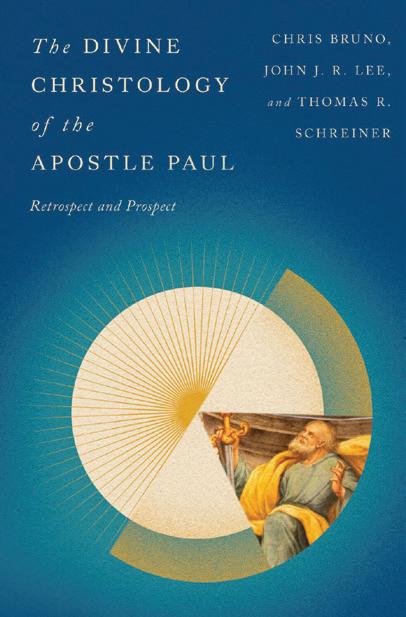
Te Divine Christology of the Apostle Paul
Tomas R. Schreiner
IVP Academic, 2024 | $30.00

Te Justice and Goodness of God: A Biblical Case for the Final Judgment
Tomas R. Schreiner Crossway, 2024 | $17.99
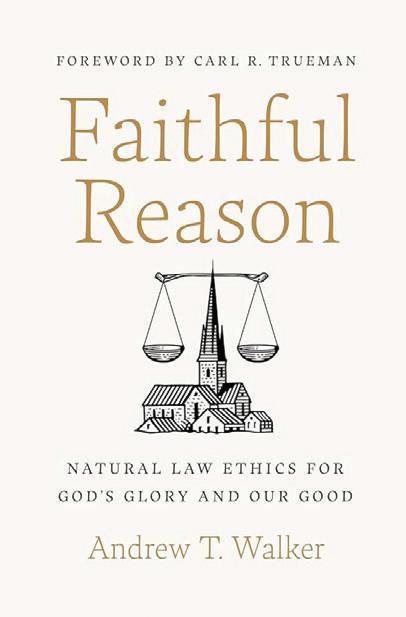
Faithful Reason: Natural Law Ethics for God's Glory and Our Good Andrew T. Walker B&H, 2024 | $34.99
In Te Divine Christology of the Apostle Paul, biblical scholars Chris Bruno, John Lee, and Tomas Schreiner explore the more detailed and ofen perplexing conversations concerning the divinity of Christ, bringing helpful guidance and clarity to scholars' various articulations, including those of Richard Bauckham, Larry Hurtado, Chris Tilling, N. T. Wright, and others.
In his book Te Justice and Goodness of God, theologian Tomas Schreiner ofers a comprehensive, biblical analysis of eternal destruction. Explaining that “fnal judgment doesn’t contradict God’s goodness but verifes and displays it,” he examines themes of sin, death, and redemption in the New Testament and other passages of Scripture. With helpful personal and theological application, this brief guide helps readers see how God’s judgment is anchored in his holiness, justice, and righteousness.
In Faithful Reason: Natural Law Ethics for God’s Glory and Our Good, Andrew T. Walker argues that developing a comprehensive Christian ethic is not simply a matter of appealing to biblical authority, but also of understanding the way that God has ordered creation and our place within it. In this work, he provides a comprehensive and accessible introduction to natural law ethics from an evangelical perspective.
46 THE SOUTHERN BAPTIST THEOLOGICAL SEMINARY NEWS & F EATURES
THE SOUTHERN BAPTIST THEOLOGICAL SEMINARY
Recent Faculty Books
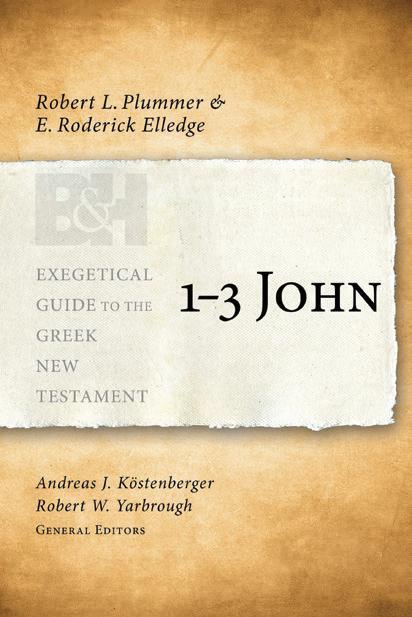
1–3 John (Exegetical Guide to the Greek New Testament)
Robert L. Plummer
B&H, 2024 | $26.99
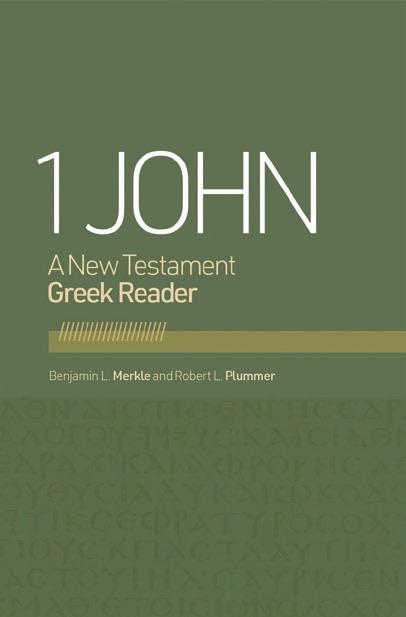
1 John Reader + Beginning Greek and Going Deeper Flash Card Sets
Robert L. Plummer
B&H, 2024 | $17.49
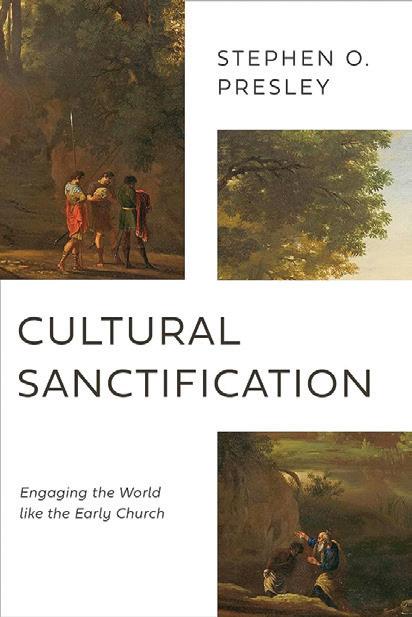
Cultural Sanctifcation: Engaging the World Like the Early Church
Stephen O. Presley
Eerdmans, 2024 | $24.99
Te Exegetical Guide to the Greek New Testament (EGGNT) closes the gap between the Greek text and the available lexical and grammatical tools, providing all the necessary information for greater understanding of the text.
Discover the beauty of reading the New Testament in Greek. Authored by experienced Greek scholars Benjamin Merkle and Robert Plummer, 1 John: A New Testament Greek Reader is perfect for beginner and intermediate students. Each of the book's 14 units begins with a vocabulary list and is followed by the assigned text. Merkle and Plummer provide lexical and grammatical help, while also taking students deeper into syntax. 1 John: A New Testament Greek Reader is a useful tool for professors, pastors, and students alike.
Stephen O. Presley show us how the frst Christians approached cultural engagement. Amid a pagan culture that regarded their faith with suspicion, early Christians founded a religious movement that transformed the ancient world. Looking to theologians like Augustine, Origen, and Tertullian, Presley shows how the early church approached family, politics, and more. From these examples, he draws lessons for practicing discernment in how we engage with the wider culture.
SPRING 2024 47 NEWS & F EATURES
Recent Faculty Books
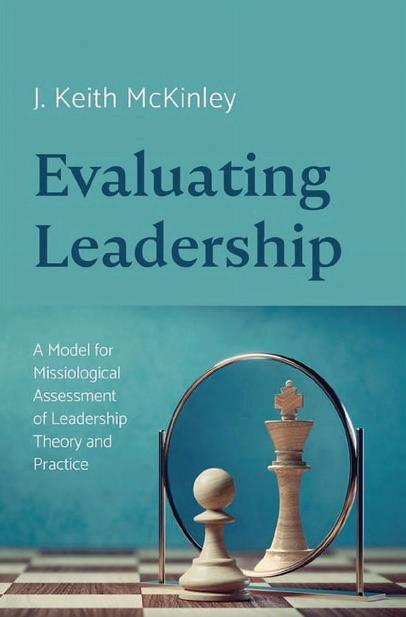
Evaluating Leadership: A Model for Missiological Assessment of Leadership Teory and Practice
J. Keith McKinley
Wipf and Stock, 2024 | $30.00
How should you go about assessing the quality of a leadership practice? How can you evaluate leadership ideas to ensure that they line up with Scripture? How can you assess a leadership model and know it will work in your ministry setting? Evaluating Leadership provides a solution to these problems. It introduces the Leadership Assessment Matrix, which helps you assess whether a leadership theory, principle, or practice is suitable for your team and your specifc context.
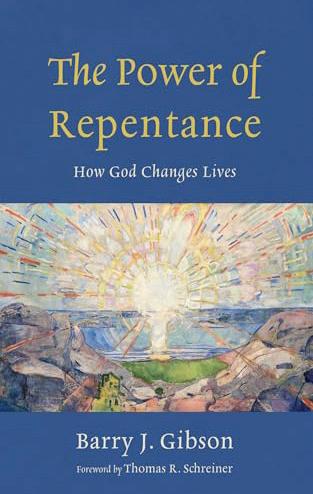
Te Power of Repentance: How God Changes Lives
Barry J. Gibson
Wipf and Stock, 2024 | $16.00

Susannah Spurgeon: Te Pastor’s Wife Who Didn’t Let Sickness Stop Her
Mary K. Mohler
Te Good Book Company, 2024
$14.99
What is repentance? What does repentance look like? How do I live a life of repentance? Tis book, Te Power of Repentance, addresses these questions, giving clear and insightful instruction regarding God's gif of repentance and its employment in a life that turns from the darkness of sin and self into the light of life in Christ.
Read the true story of Susannah Spurgeon, the wife of British pastor Charles Spurgeon. Tis beautifully illustrated children’s biography of Susannah Spurgeon (1832-1903) features stylish illustrations and extra facts at the back, including a biographical timeline with historical photos. It is part of a series designed to show kids that God uses ordinary people to do extraordinary things.
THE
THEOLOGICAL
SOUTHERN BAPTIST
SEMINARY
48 THE SOUTHERN BAPTIST THEOLOGICAL SEMINARY NEWS & F EATURES
THE SOUTHERN BAPTIST THEOLOGICAL SEMINARY
Recent Faculty Books
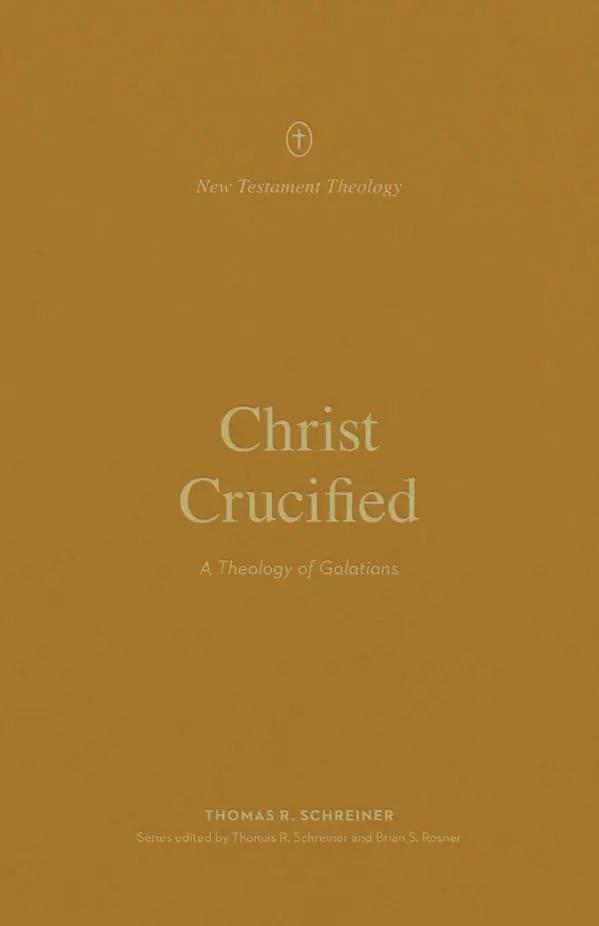
Christ Crucifed: A Teology of Galatians (New Testament Teology)
Tomas R. Schreiner Crossway, 2024 | $23.99
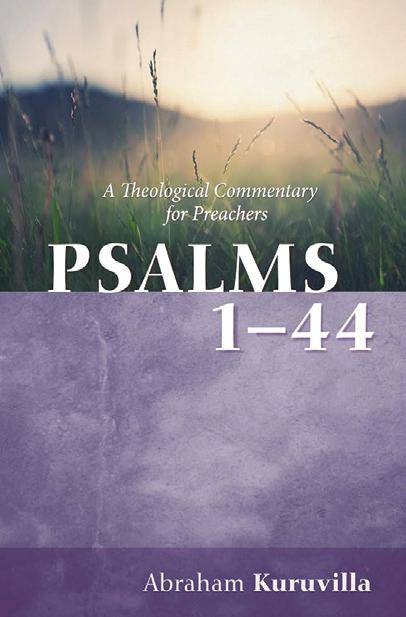
Psalms: A Teological Commentary for Preachers (3 Vol.)
Abraham Kuruvilla Cascade Books, 2024 | $39.00

What Do I Say When…?:
A Parents' Guide to Navigating Cultural Chaos for Children and Teens
Andrew T. Walker, Christian Walker Crossway, 2024 | $16.99
In this addition to the New Testament Teology series, scholar Tomas R. Schreiner addresses the confict between Paul and his opponents in Galatia, examines the gospel itself, and shows what it looks like to live out the truth of the gospel in the new era. Afer examining the dominant biblical-theological themes of Galatians, readers will be reminded of the gif of grace Christ ofers through his death on the cross the only possible path to salvation and true unity among believers.
While the primary goal of the commentary is to take the preacher from text to theology, it also provides a sermon outline for each of the preaching units in the Psalms. Te unique approach of this work results in a theology-for-preaching commentary that promises to be useful for anyone teaching from the Psalter with an emphasis on application.
Children ask tough questions, and the current culture is only increasing the challenges parents face in answering these questions. Professor Andrew Walker and his wife, Christian, have written this book to equip parents with biblical answers when their children ask questions about sexuality, abortion, politics, and more.
SPRING 2024 49 NEWS & F EATURES
Back in the Library
academic
in the




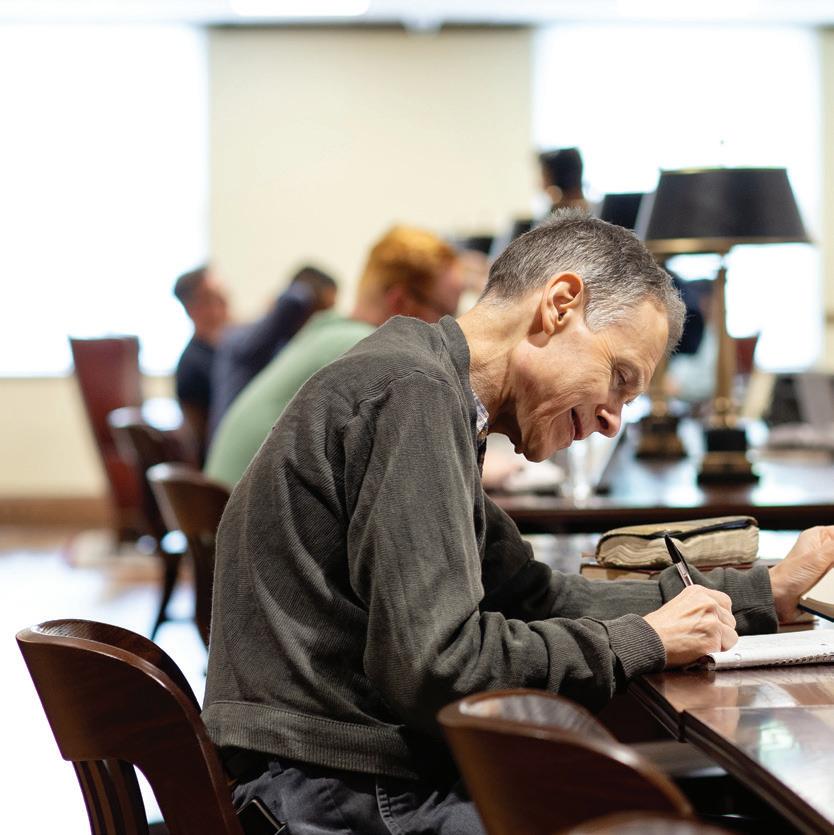
50 THE SOUTHERN BAPTIST THEOLOGICAL SEMINARY
Photos from the frst
year
newly renovated James P. Boyce Centennial Library

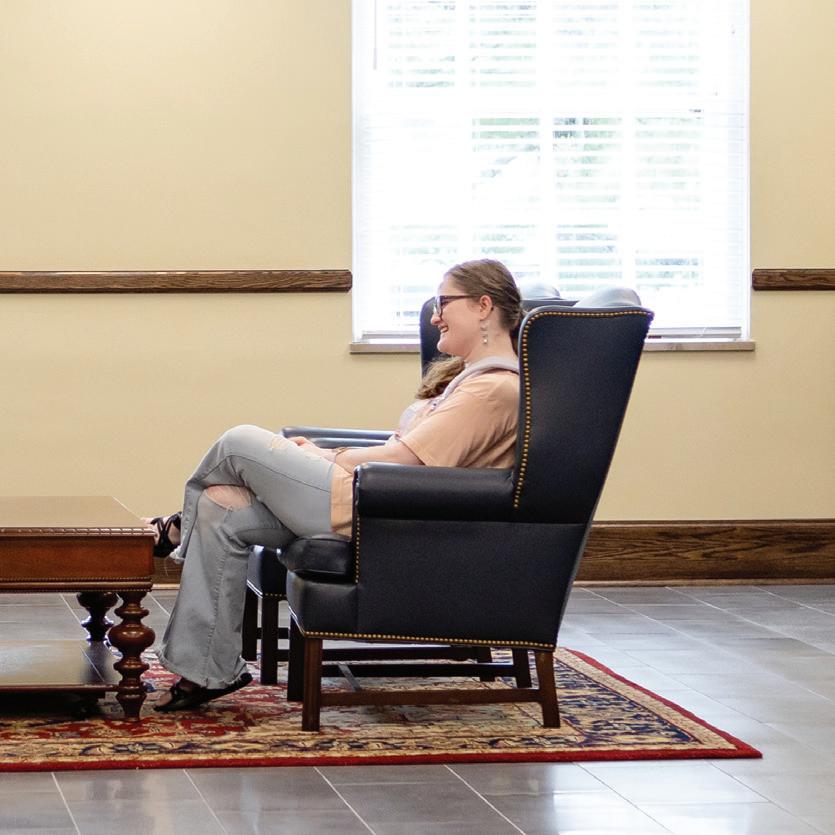


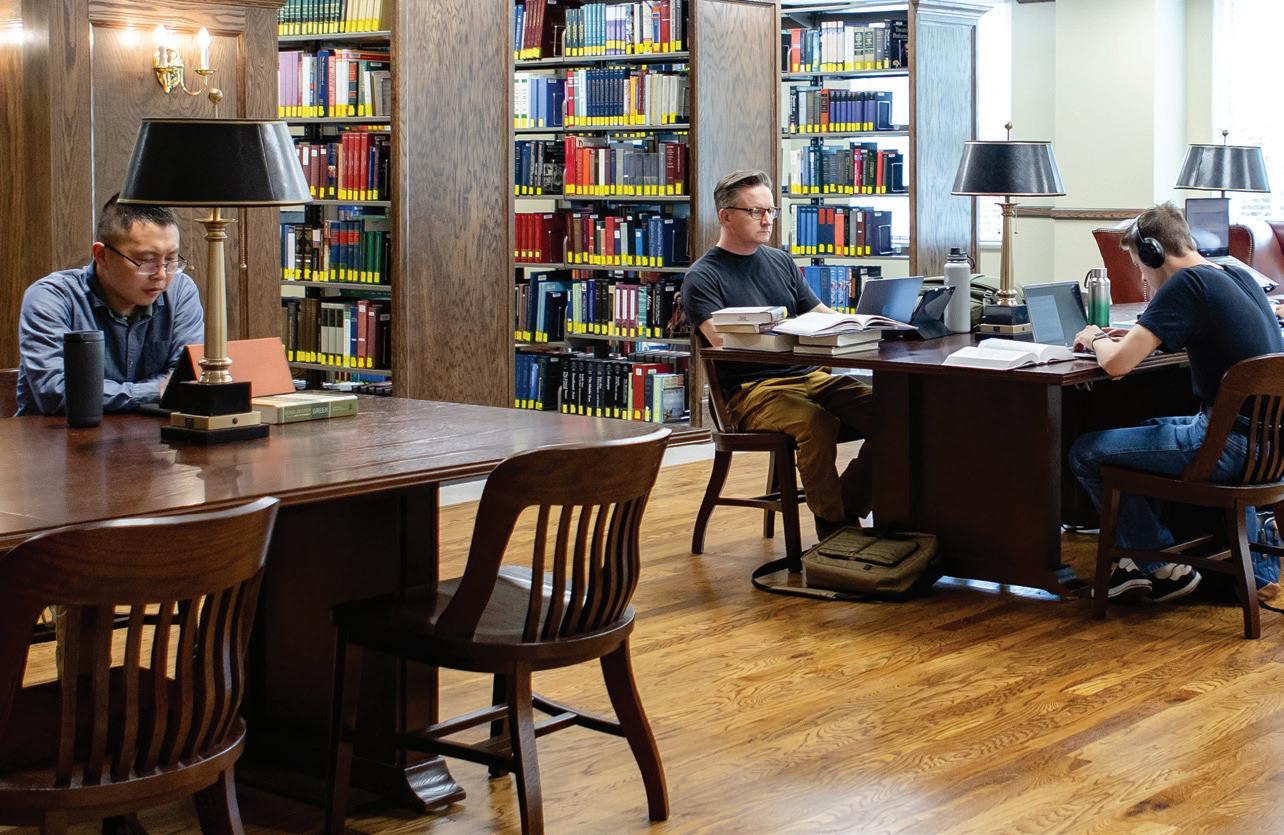
SPRING 2024 51

52 THE SOUTHERN BAPTIST THEOLOGICAL SEMINARY
Evangelism as a Way of Life
TIMOTHY K. BEOUGHER
Bible-believing Christians know they are called to be Christ’s witnesses (Acts 1:8). Tey understand they are to commit their lives to make disciples of all nations (Matt 28:18–20). But some Christians have never begun the exciting adventure of sharing their faith, while others may witness sporadically but not consistently. How can believers cultivate a Great Commission lifestyle? In this article, I share advice for cultivating and maintaining evangelism as a way of life.
Te Importance of Verbal Proclamation
Evangelism is not “mere presence.” We hear that faulty perspective expressed ofen today. Individuals declare, “I’m just going to witness with my life and let my life do the talking.” Some “quote” Francis of Assisi (1181/82–1226), claiming he opined, “Preach
the gospel at all times; use words if necessary.” Whether or not Francis uttered that phrase is debated, but regardless, the statement is not biblically sound. Afrming “preach the gospel at all times; use words if necessary” is like saying “feed the hungry at all times; use food if necessary.”
Your life is not the gospel. Our life is not the gospel. What God has done for us in Christ Jesus is the gospel. Hence, the good news must be shared verbally. Evangelism is more than mere presence. LeRoy Eims shares a powerful illustration:
A Christian businessman in Seattle confessed how he had unknowingly discouraged a business associate from coming to Christ for years. One day the friend told the Christian businessman he had met the Lord the night before at
SPRING 2024 53
a Billy Graham meeting. Te longtime Christian was elated and said so, but the new Christian replied, “Friend, you’re the reason I have resisted becoming a Christian all these years. I fgured if a person could live a good life as you do and not be a Christian, there was no need to become one!”1
As Eims points out, this Christian businessman had sought to live an exemplary life, but he had not communicated his source of strength for doing so.
How will people know where our hope is found if we do not tell them? We may think that our life is bearing testimony, but without an accompanying verbal witness, the gospel has not been communicated. Evangelism is not “mere presence.” We might re-cast the mistakenly attributed quote of St. Francis of Assisi in this way: “Share the gospel at all times, and use words, because they are necessary.”
Te Relationship between a Christian’s Walk and Talk
Our life is not the gospel. Te gospel must be shared verbally. But our “walk” does carry weight. Te following diagram is one I developed afer wrestling with the relationship between our “walk” and our “talk” in evangelism. As the diagram shows, both are always necessary. If you live a committed Christian life but never share the gospel verbally, then how does your non-Christian neighbor know the source of your hope? And conversely, if you communicate the gospel verbally but are a complete jerk in the process,
then those words of eternal life may well fall on deaf ears.
Both “walk” and “talk” are important, but their relative importance is dependent on the relationship between the witness and the person to whom he or she is witnessing.
family close friend acquaintance Person C
Your gives credibility to your (1 Pet 2:12).
Your gives clarity to your (Acts 2).
Your life (versus your words only) is going to speak loudly when sharing with a family member. Remember the context of 1 Peter 3. Peter is writing to wives who have unbelieving husbands; he tells them that the way to reach their unbelieving husbands is not by continually preaching to them, not by trying to nag them into the kingdom. On the contrary, Peter instructs wives to communicate the good news to their unbelieving husbands and then to let their lives reinforce the gospel. With a family member or close friend, your walk will carry a lot of weight, but note that the gospel still
1 Leroy Eims, One to One Evangelism: Winning Ways in Personal Witnessing (Wheaton, IL: Victor Books, 1990), 39.
54 THE SOUTHERN BAPTIST THEOLOGICAL SEMINARY EVANGELISM AS A WAY O F L I F E
must be shared verbally for evangelism to have taken place.
But with acquaintances or complete strangers (Person C stands for a Cornelius-type person, a “stranger” whom the Lord providentially brings across our path), the Christian’s “walk” becomes less signifcant in relation to his or her “talk.” Te person doesn’t know us well (or at all) and therefore cannot refect deeply on the Christian character that might be present in our life. But even the manner in which we communicate with that person, whether an acquaintance or a “Person C,” will speak loudly to them. We can share the good news of the love of Christ with others, but if we do it in a harsh, unloving manner, then the message might be ignored. What is the relationship between a Christian’s walk and talk? Both are always necessary. Live out the hope found in the gospel at all times and use words because they are necessary.
Keeping Evangelism as a Lifestyle
How can we maintain witnessing as a regular part of our life, not something that we sporadically engage? Let me suggest several ways.
share the good news “in season and out of season” (2 Tim 4:2 ESV).
A lot of things happen by accident, but evangelism is not typically one of them. We must commit ourselves to a lifestyle of sharing the good news with others. Oscar Tompson refected, “When I am walking in submission to my Lord, I bump into more people accidentally who need Jesus than I ever could run down on purpose.”2 Be ready anywhere, anytime, and anyhow. Commit to
Each morning, “lif up your eyes” and see that the “felds are white for harvest” (John 4:35). We need that daily reminder, because lef to ourselves, when we wake up each morning, our focus is too readily on our own struggles, our own troubles, and our own to-do lists. Pray that the Holy Spirit would make you sensitive to witnessing opportunities throughout the day. Tat is a prayer that God delights to answer! Beginning each day with that prayer sensitizes us to opportunities we might have otherwise overlooked.
We ofen face two struggles in terms of sharing the gospel: a lack of compassion and a lack of boldness. We too easily lose our sense of compassion, and when we look upon the lost multitudes, instead of having compassion as our Lord did (Matt 9:36), we look on them with coldness or callousness or criticism or condemnation. Pray ofen, “Lord, give me the heart of compassion that you have.” Pray also for boldness. Te early church prayed for boldness (Acts 4:29). Why? Because they were fearful and needed it! God delights to answer prayers for compassion for others and boldness to share the gospel.
Mark 4 recounts the parable of the sower who went out to sow. As he sowed, seed fell
2 W. Oscar Tompson, Concentric Circles of Concern (Nashville: Broadman Press, 1981), 63.
T IMOTHY K . B EOUGHER SPRING 2024 55
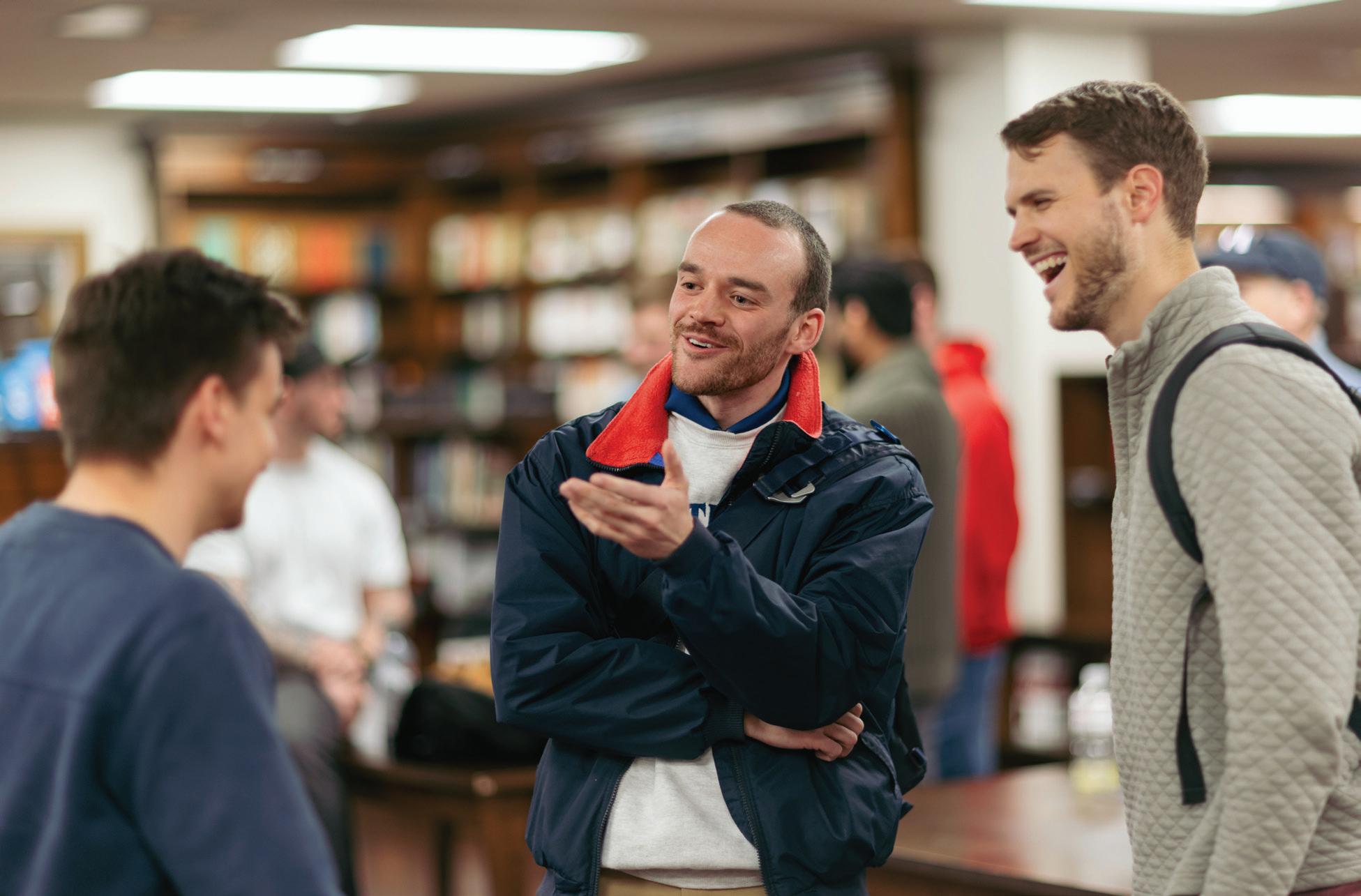
on diferent kinds of soil. Notice Jesus did not say that the sower went out to inspect the soil, and then where he thought he found good soil he sowed the seed, but where the soil did not look good he withheld the seed. I am afraid that is sometimes the way that we approach sowing the seed of the gospel. We mistakenly believe there is a limited amount of seed because we sow it very sparingly. As the sower went out to sow, he sowed indiscriminately, he sowed widely. Yes, some of the seed fell on hard soil, but some of it fell on good soil. Determine to be a sower and not a soil inspector.
12:34, where Jesus says, “Out of the abundance of the heart the mouth speaks.” If we are having trouble talking about Christ, then that is not really a speech problem but a heart problem. When we are really passionate about something, we do not have trouble talking about it. Grandparents don’t need any training to talk about their grandchildren. Cultivate your love relationship with Christ. When you are passionately in love with him and when his love is overfowing in your life, talking about him is as natural as breathing.
I believe one of the most signifcant verses related to personal evangelism is Matthew
What a responsibility to be entrusted with the gospel message to share with others! What a privilege to be able to point others to Jesus Christ, the one and only Savior! How beautiful are the feet of those who bring good news (Rom 10:15)! Let’s make sharing that message a way of life!
56 THE SOUTHERN BAPTIST THEOLOGICAL SEMINARY EVANGELISM AS A WAY O F L I F E
The Faith First Podcast

AVAILABLE NOW FROM BOYCE COLLEGE
Join us for conversations hosted by Ana Lee, a Boyce College alumni, that give you a window into the experience of life at Boyce College. This podcast will encourage you to keep the faith “once for all delivered to the saints” (Jude 1:3) at the forefront of your life.


SUBSCRIBE TODAY BOYCECOLLEGE.COM/FAITHFIRSTPODCAST























 George Martin
George Martin












 Chairman Keith Daniels
Chairman Keith Daniels






























